News
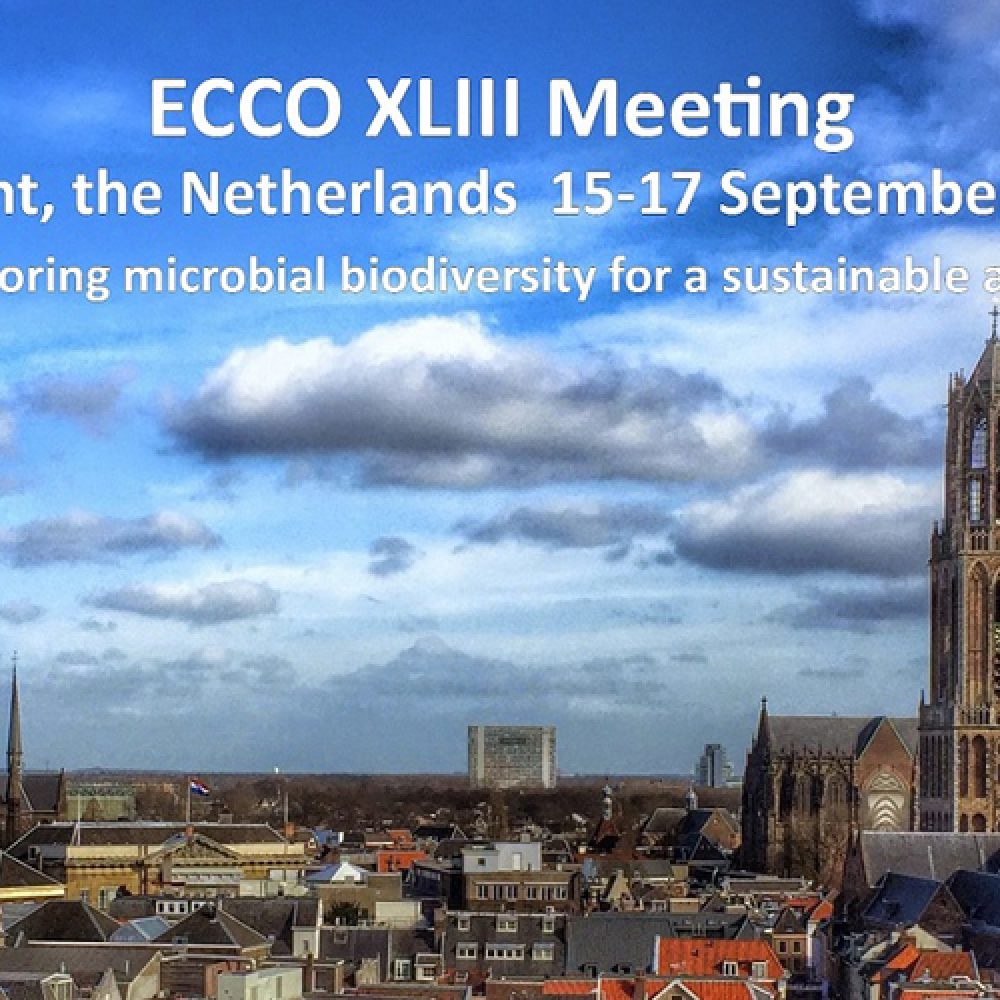
Registration for ECCO XLIII (Utrecht. the Netherlands) is now open!
Registration for ECCO XLIII (Utrecht. the Netherlands) is now open! The organisers (Westerdijk Fungal Biodiversity Institute) of this year’s ECCO meeting are pleased to welcome you to Utrecht, the Netherlands, from 15th to 17th September. For more information and to register visit the meeting website: eccomeeting2025.org
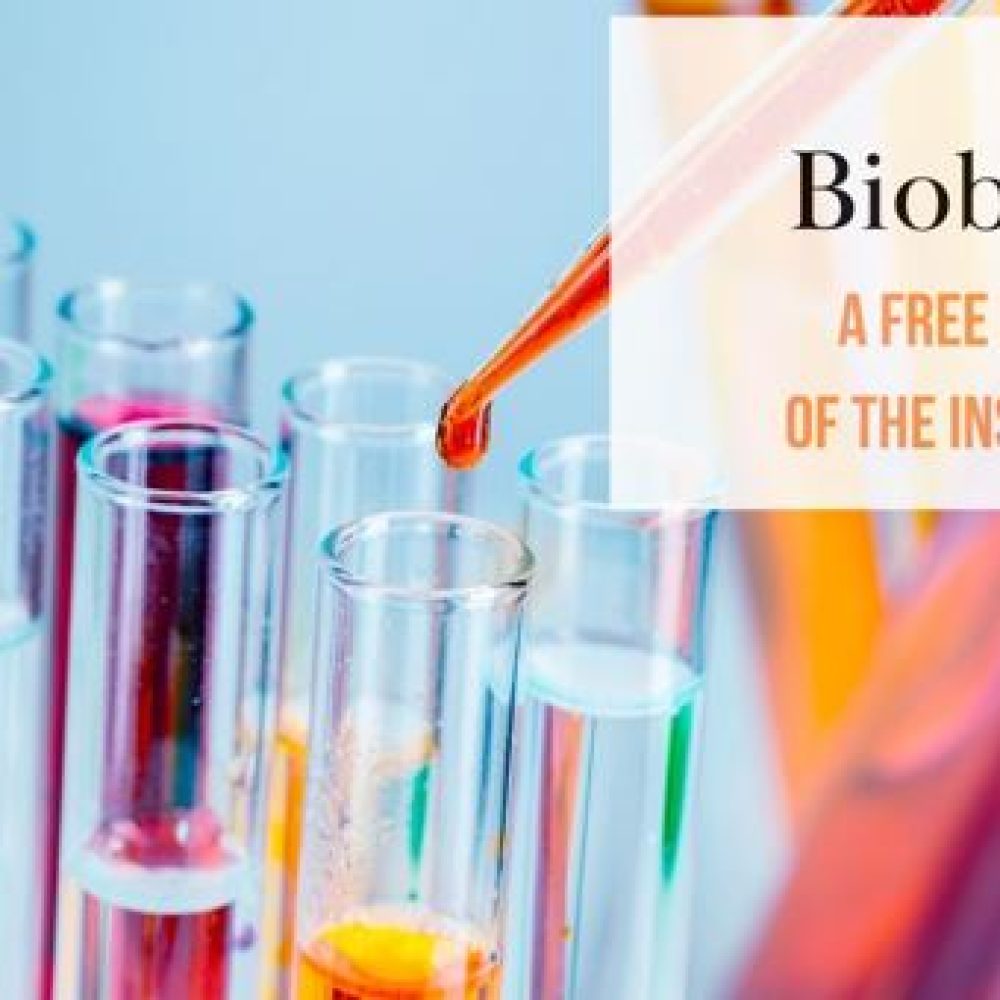
“Biobanking” a free online course of Institut Pasteur
Dear all, I have the pleasure to inform you that registration for the FREE Massive Open Online Course (MOOC) “Biobanking” from Institut Pasteur Paris is now open! How has biobanking evolved in recent years? What are the different biobanks and for which purposes? By the end of the course, you will be able to: ✔ Understand how biobanks allow end-users to access fit-for-purpose biological resources. ✔ Be aware of the ethical, regulatory and quality assurance aspects of processing, preservation and distribution of biological resources. ✔ Learn about validation of biobank methods. ✔ Get to know international networks of biobanks. The MOOC will run from March 4th, 2025 until March 3rd, 2026. It is recorded in English, with French and English subtitles. Once registered, you can follow it at your own pace and still watch the videos after the end of the broadcasting. Registration is completely free, with an option to take a short exam and receive a certificate for a small fee. This course is also part of the Institut Pasteur Online Diploma of Infectious Diseases (DNM2IP). ==> To find more details about the MOOC and the registration link here. Please do not hesitate to widely share this information! Best wishes, Raquel Hurtado-Ortiz, on behalf of the Biobanking MOOC team
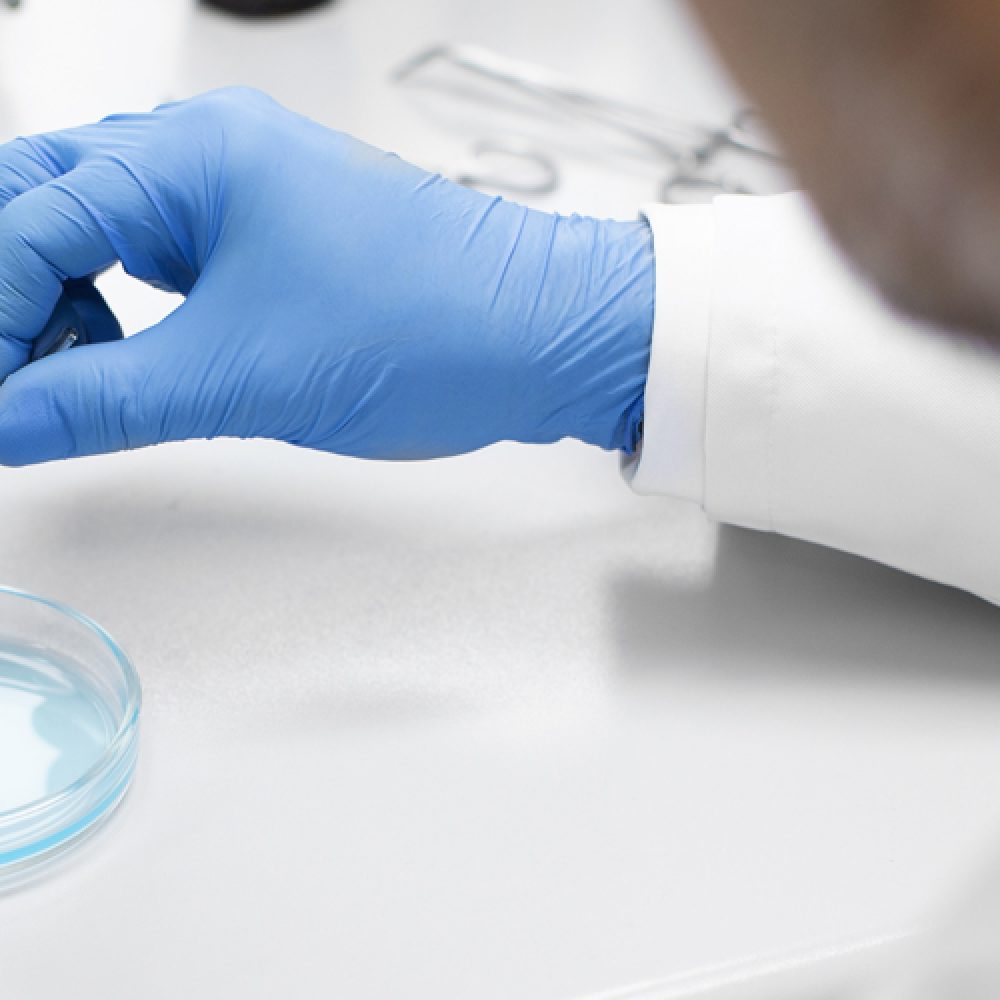
Position paper – Exchange of strains between Culture Collections
The position paper on Exchange of strains between Culture Collections discusses the impact, advantages, and pitfalls related to the exchange of strains among ECCO collections and proposes new terms for cooperation. It is now published here and in Zenodo in this link: https://zenodo.org/records/14558612.

ECCO XLIII. Utrecht. the Netherlands
The organisers of this year’s ECCO meeting are pleased to welcome you to Utrecht, the Netherlands, from 15th to 17th September. The general topic of that meeting will be “Securing and exploring microbial biodiversity for a sustainable and healthy future”. More info will follow soon. In the meantime we hope you will secure this period for our organization’s annual event!
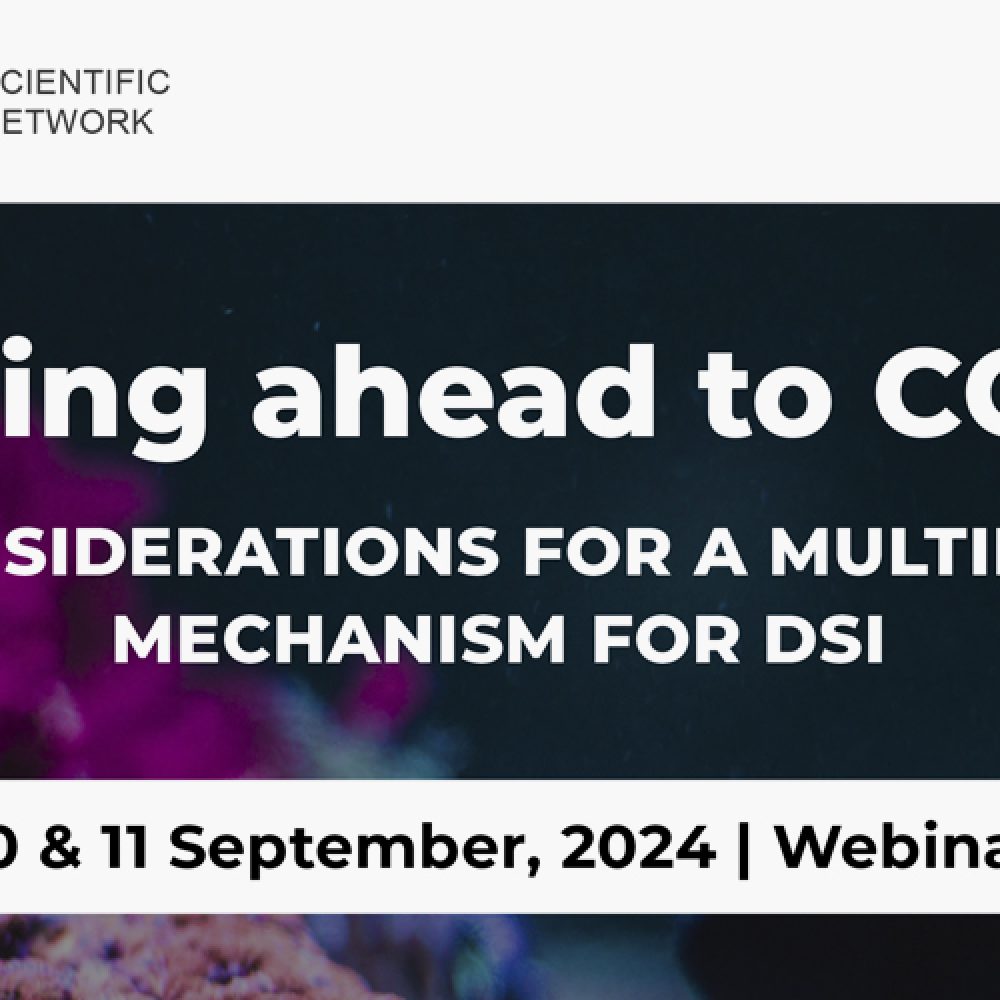
DSI: Looking ahead to COP16
DSI will be holding two webinars on the 10 and 11 of September on the key considerations for a multilateral mechanism for DSI in relation to COP16. Agenda Translating good intentions into an effective system to leverage DSI use in support of the GBF Understanding how DSI is stored and shared: Implications of an interdependent ecosystem of databases for policy options Accounting for non-monetary benefits in the new DSI mechanism Future-proofing the multilateral system Registration 10 September: Webinar Registration – Zoom Registration 11 September: Webinar Registration – Zoom Poster
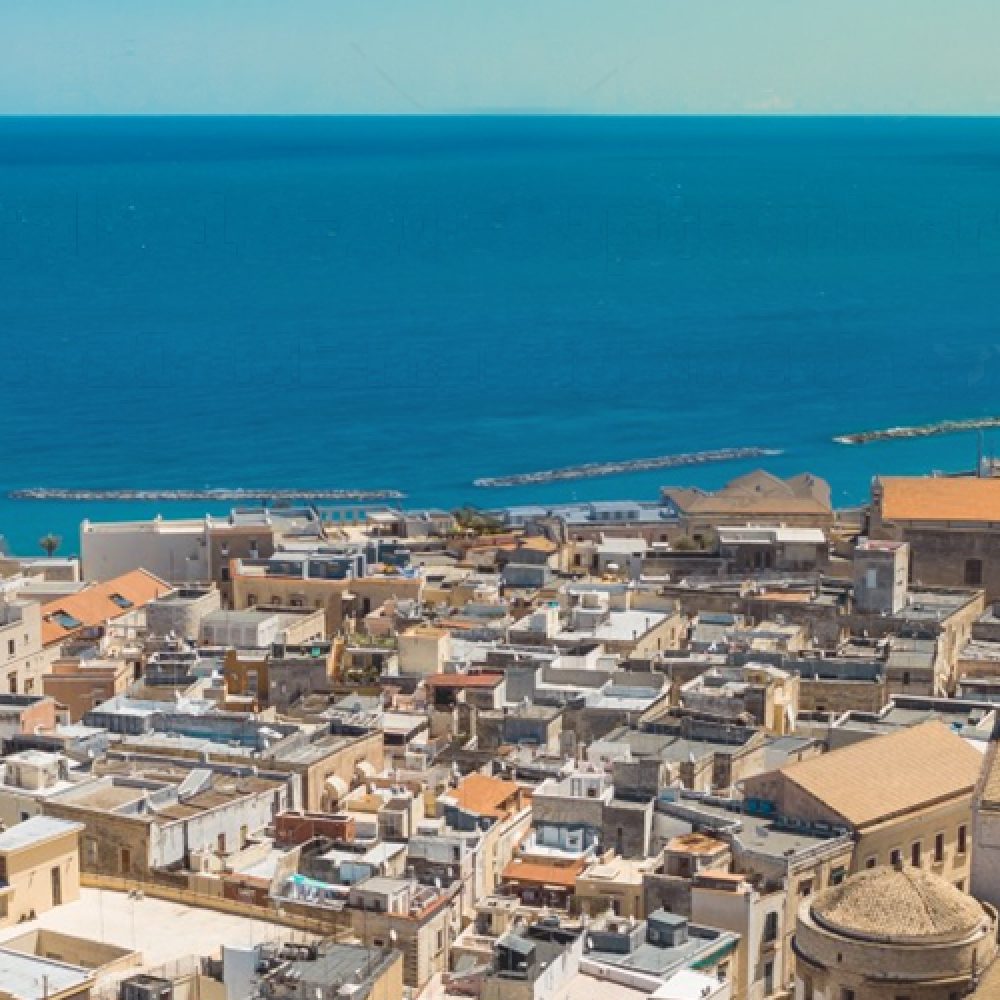
Registration for ECCO XLII is now open!
We are very pleased to announce that the XLII European Culture Collections’ Organisation (ECCO) meeting will be held in the amazing city of Bari (Apulia region, Southern Italy), from 18 to 20 September 2024. The ECCO meeting is organised by the Institute of Sciences of Food Production of the National Research Council of Italy (CNR-ISPA) and sponsored by the CNR-ISPA Agri-food Microbial Culture Collection (ITEM), and the International Society on Mycotoxicology. The meeting will be focused on the study, management and valorisation of Microbe & Microbiome, as biological resources, and bio-systems crucial tools for a better understanding of biological systems, to support quality of life and promote the transition towards a better planet. The conference promotes a holistic and integrated approach on the value of microbial resources and Microbial Biological Research Centers (mBRCs): i) to support basic and applied transdisciplinary sciences, ii) as resilience factors to deal with global changes and sustainable development, and iii) to promote human and animal health in the framework of a OneHealth perspective. For more information and to register visit the meeting website: www.eccomeeting2024.org

The 2030 Declaration on Scientific Plant and Fungal Collecting
Arising from discussions at the 2023 State of the World’s Plants and Fungi symposium, the ‘2030 Declaration on Scientific Plant and Fungal Collecting’ contains five commitments towards filling key knowledge gaps in plant and fungal diversity, through collaborative and targeted collecting and research activities. Download the full declaration from the Royal Botanic Gardens Kew website.
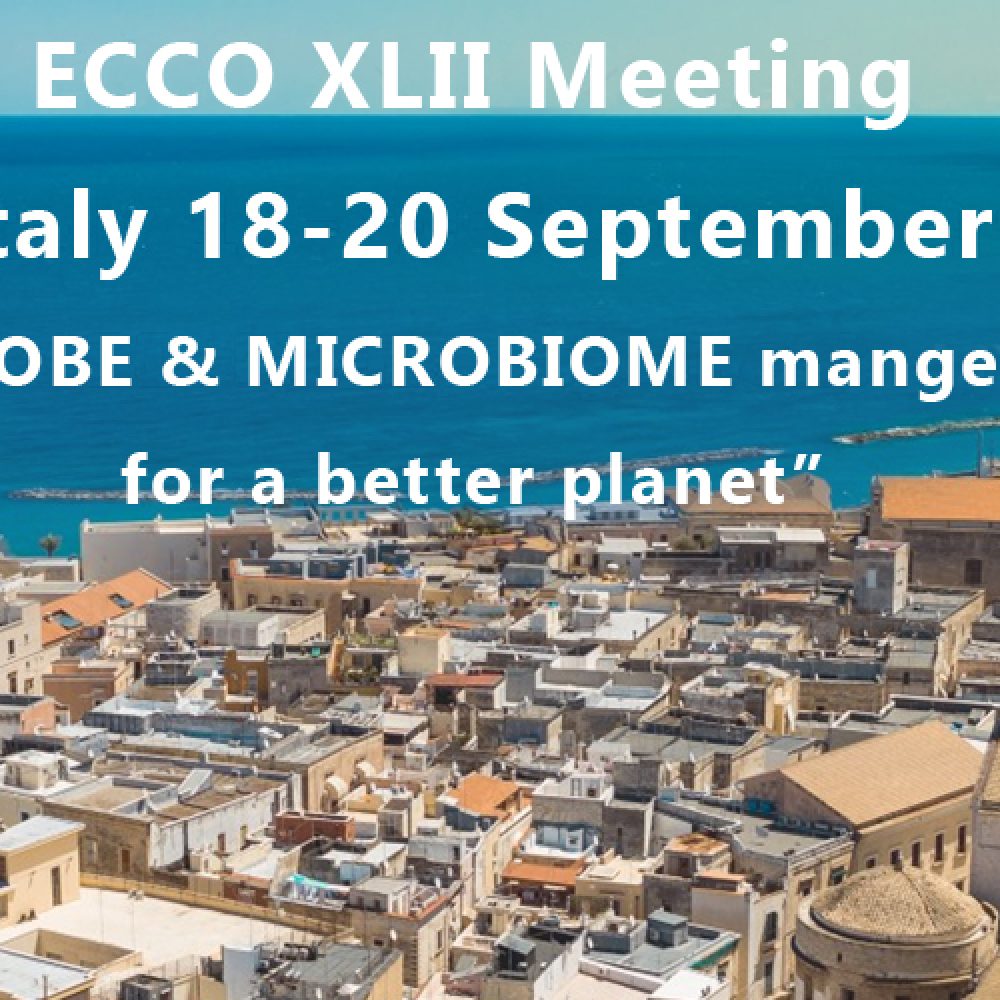
ECCO XLII. Bari. Italy
ECCO XLII ‘Microbe & Microbiome management for a better planet’ will be held in Bari, Italy 18-20 September 2024. More information and registration will be available soon. Save the date!
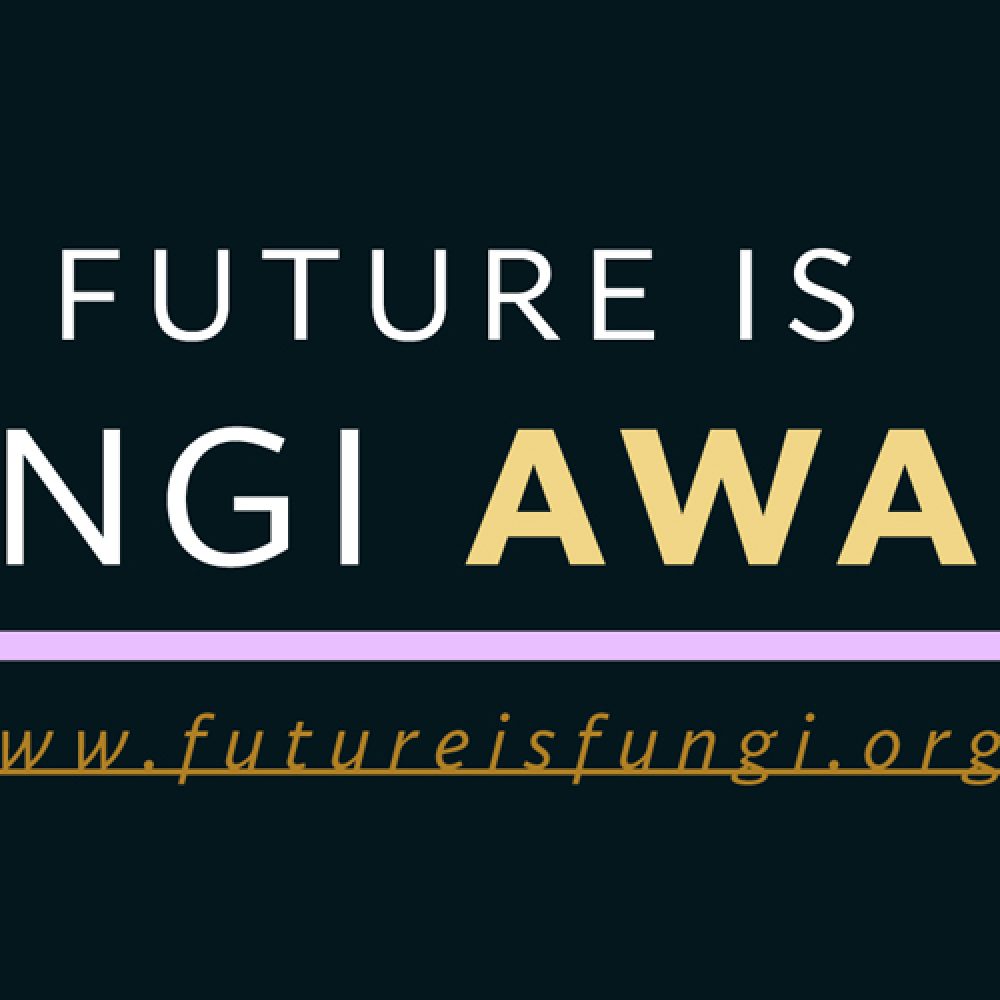
The Future is Fungi Award
The Future is Fungi Award honors frontier and cutting-edge science and innovation on how to use fungi for the environmental solutions that the world needs.Are you ready to lead the way? Learn more at www.futureisfungi.org! The application period is open from on September 5th until October the 15th. The winner will receive EUR 10 000 + mentorship + access to a broad network and visibility Let us accelerate the fungi revolution together!
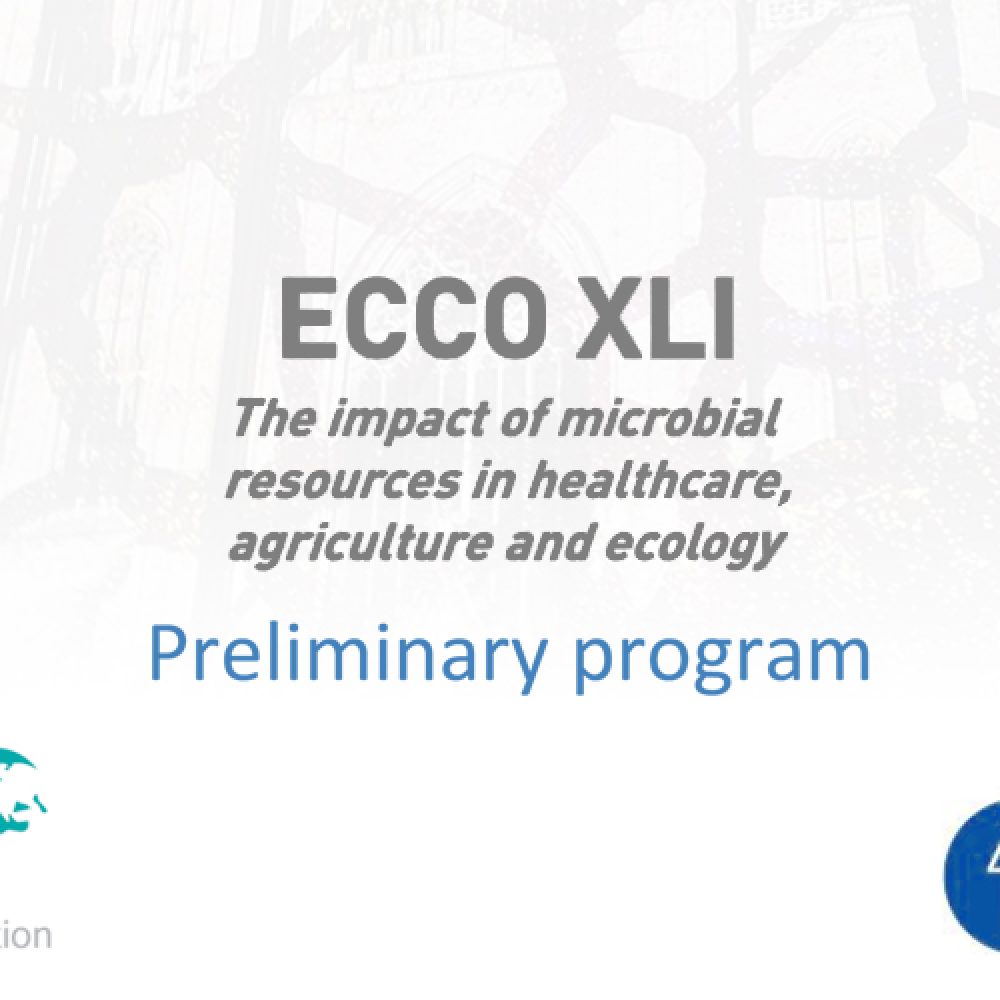
New updated preliminary program for ECCO XLI
Tuesday 19 September 9:30: MALDI-TOF training13:00: Welcome & ECCO registration14:00: Keynote lectures16:30: Opening Expo 40 years BCCM & networking reception19:00: Walking buffet & animation Wednesday 20 September 8:30: ECCO registration9:00: Welcome address9:15: Session 1 – Microbes in Health & Disease Chair: Rudi Beyaert & Wouter De SchamphelaireKeynote speaker: Kim De Paepe (Ghent University, Belgium): “In vitro technology to study livebiotherapeutics and enteropathogens in the human gut“Nicolas Bruffaerts (Sciensano, Belgium): “Towards standardization of next-generation real-time bioaerosol monitors“Selected short talks 10:30: Break11:00: Session 2 – Microbes in Health & Disease Chair: Rudi Beyaert & Wouter De SchamphelaireKeynote speaker: Marie Joossens (Ghent University, Belgium): “The oral cavity: a mouthful ofopportunities“Dirk Roymans (KULeuven, Belgium): “The VirusBank Platform“Selected short talks 12:30: Lunch13:15: Session 3 – Microbes in Food and Agriculture Chair: Stéphane Declerck & Gerard VerkleijKeynote speaker: Marc Ongena (TERRA): “Biocontrol of plant pathogens combining AMF andbacteria“Felix Richter (Imperial college London): “Microfluids to study microorganisms at the cellular level“Selected short talks 14:45: Break15:15: Session 4 – Microbes in Food and Agriculture Chair: Stéphane Declerck & Gerard VerkleijKeynote speaker: Jos Houbraken (Westerdijk Institute): “Heterogeneity in food spoilage fungi”Heide-Marie Daniel (Université catholique de Louvain): “Yeasts in cocoa, coffee and sourdough“Selected short talks 16:30: End of session17:30: Guided visit Chocolate museum Thursday 21 September 9:00: Session 5 – Microorganisms in ecological applications Chair: Annick Wilmotte & Cristina VareseKeynote speaker : Beatriz Roncero Ramos (University of Seville, Spain): “Understanding themechanisms of stress resistance to optimize the application of cyanobacteria for soil restoration“Other speaker to be confirmedSelected short talks 10:30: Break11:00: Session 6 – Microorganisms in ecological applications Chair: Annick Wilmotte & Cristina VareseKeynote speaker : Felice Mastroleo (SCK-CEN): “Running a photobioreactor in space for the production of oxygen and edible ‘spirulina’ biomass“Jay Sankar Seelam (Ghent University): “Diversifying application of recycled nutrients derived from anaerobic digestion for sustainable algal protein farming“Selected short talks 12:30: Lunch13:15: Session 7 – Taxonomy, Phylogeny, Phylogenomics, Phylodynamics: new techniques and approaches Chair: Leen Rigouts and Peter VandammeKeynote speaker: Connor Meehan (Nottingham University, UK): “Using genomes for the classification and tracking of mycobacteria”Frederik Baert (Sciensano, Belgium: “Dermatophytes fungi: Phylogenomics of the Trichophytonmentagrophytes species complex“Selected short talks 14:45: Break15:15: Session 8 – Data management, infrastructures Chair: Philippe Desmeth & Ayuen LualKeynote speaker: Juncai Ma (WDCM): “WDCM services as an information infrastructure for the exploration and utilization of microbial strains preserved worldwide”Vincent Robert (BioAware): “The beauty of data and databasing“Luc Cornet (University of Liège, Belgium): “The GEN-ERA toolbox: unified and reproducible workflows for research in microbial genomics“ 16:30: IS_MIRRI21: restricted to project partners18:00: End of session19:00: Conference dinner Friday 22 September 9:00: Session 9 – Science policy, career skills, valorization of collections Chair: Philippe Desmeth & Raquel Hurtado-OrtizKeynote speaker: Daniela Ruffell (FEBS Letters): “How to write an attractive review article“Aurora Zuzuarregui (University of Valencia): “Impacts of the exchange of strains between culture collections”Nelson Lima (University of Minho): “Policy aspects related to EU Research Infrastructures” 10:30: Break11:00: ECCO Annual General Meeting: restricted to ECCO members and candidate members13:00: Closing lunch
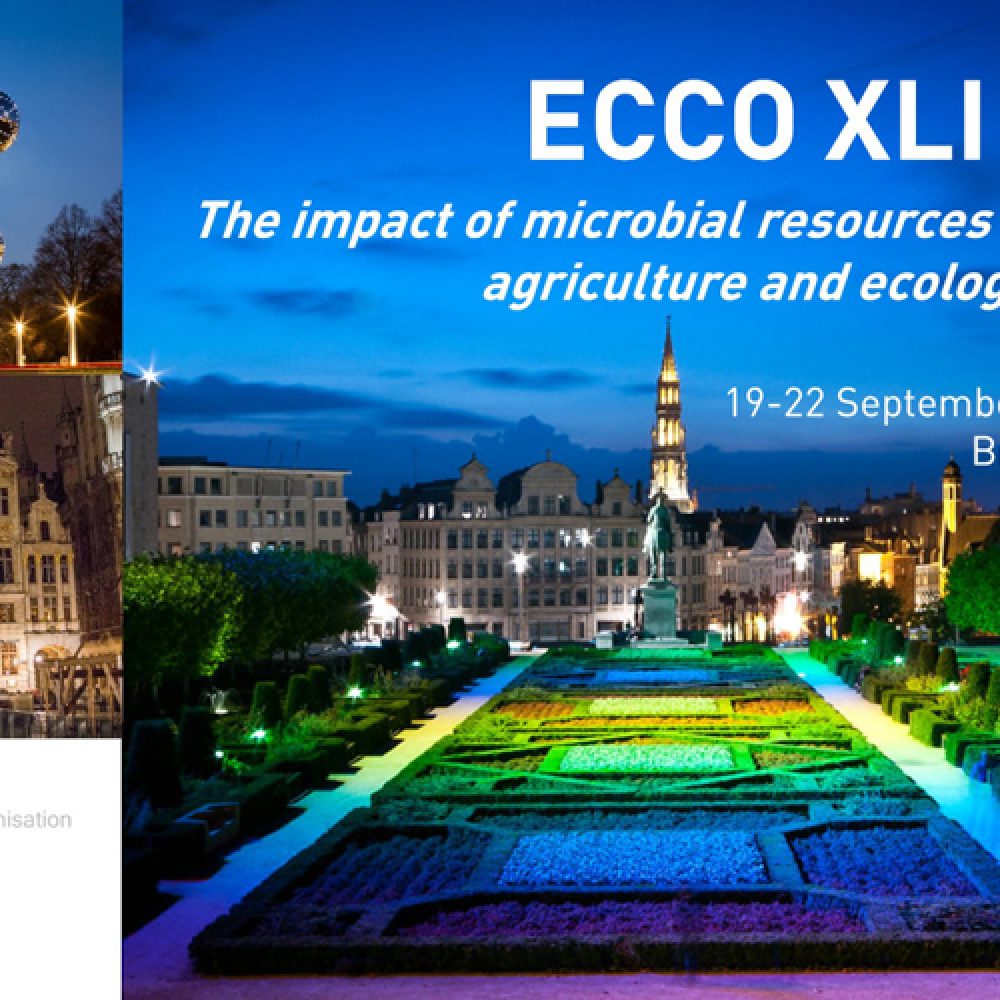
Opening of the registrations for the ECCO meeting in September
Welcome to ECCO XLI – 2023 The impact of microbial resources in healthcare, agriculture and ecology The BCCM Consortium is delighted to invite you to the 41st ECCO meeting in Brussels, Belgium, from 19th to 22nd of September 2023! ECCO XLI is organised back to back with the celebration of 40 years BCCM, so we happily invite all ECCO participants to also join us at our anniversary event on 19th of September. Together, we will attend a scientific symposium, as well as the official opening of the BCCM expo. For the first time, ECCO will be assigning grants to a selected number of young scientists to support them in attending the scientific meeting. This year’s venue is the Royal Belgian Institute of Natural Sciences, a renowned research institute as well as a stunning public museum. This inspiring location will take you from the very macroscopic world of dinosaurs to the microscopic world of our beloved micro-organisms, and back. Welcome to Brussels! Registration: Welcome to ECCO XLI | BCCM Belgian Coordinated Collections of Microorganisms (belspo.be) Venue and date Preliminary program Organisers:
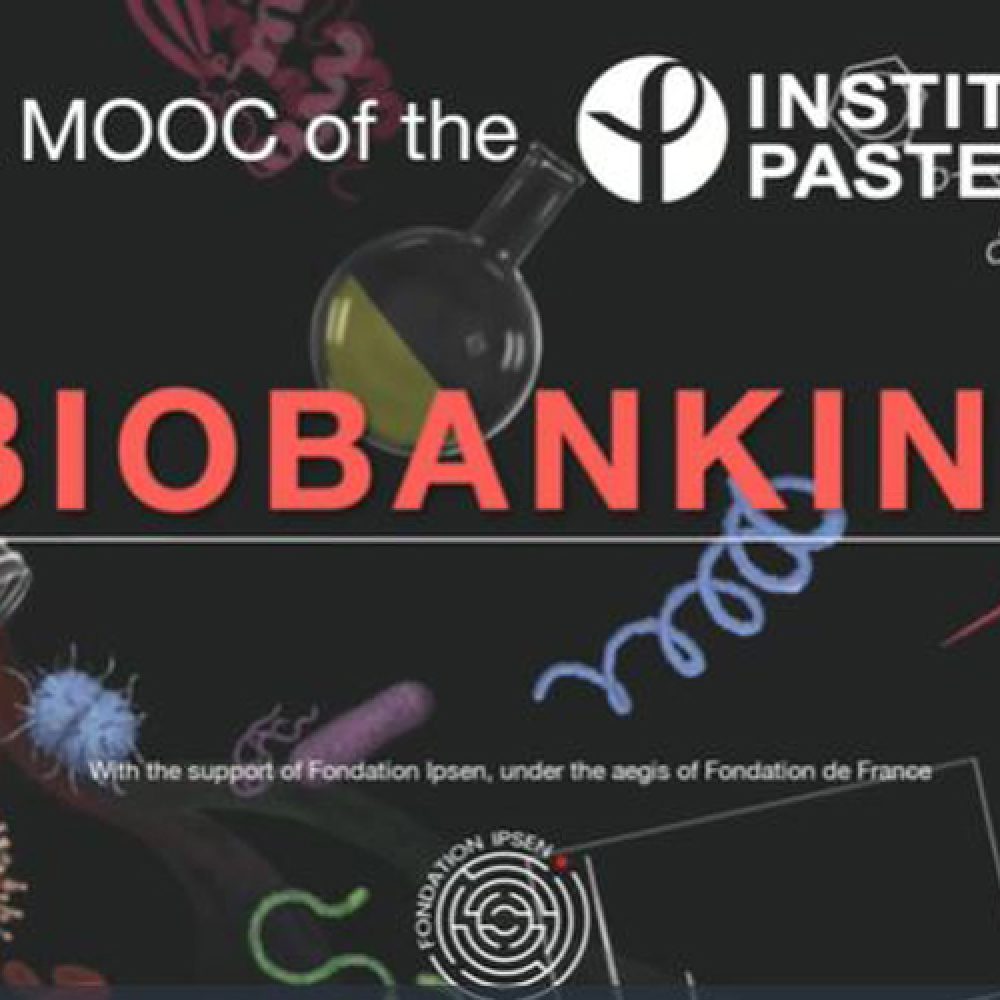
MOOC on biobanking is open
Dear colleagues, We are pleased to inform you that registration for the new edition of the MOOC on biobanking is open and completely free. The MOOC is recorded in English, with French and Spanish subtitles. It will be broadcasted from March 15, 2023, until May 17, 2023. Once registered, the videos remain available after the end of the broadcasting, which means that you can follow the MOOC at your own pace. Bringing together some of the leading experts in the field of biobanking, this MOOC will help you to: – Understand how to build a biobank of high-quality samples – Know how to make a biobank “alive” through distribution of samples to the scientific community – Be aware of the ethics, regulatory aspects, and quality behind distribution – Understand uses and applications of biobanks Registration link and more information
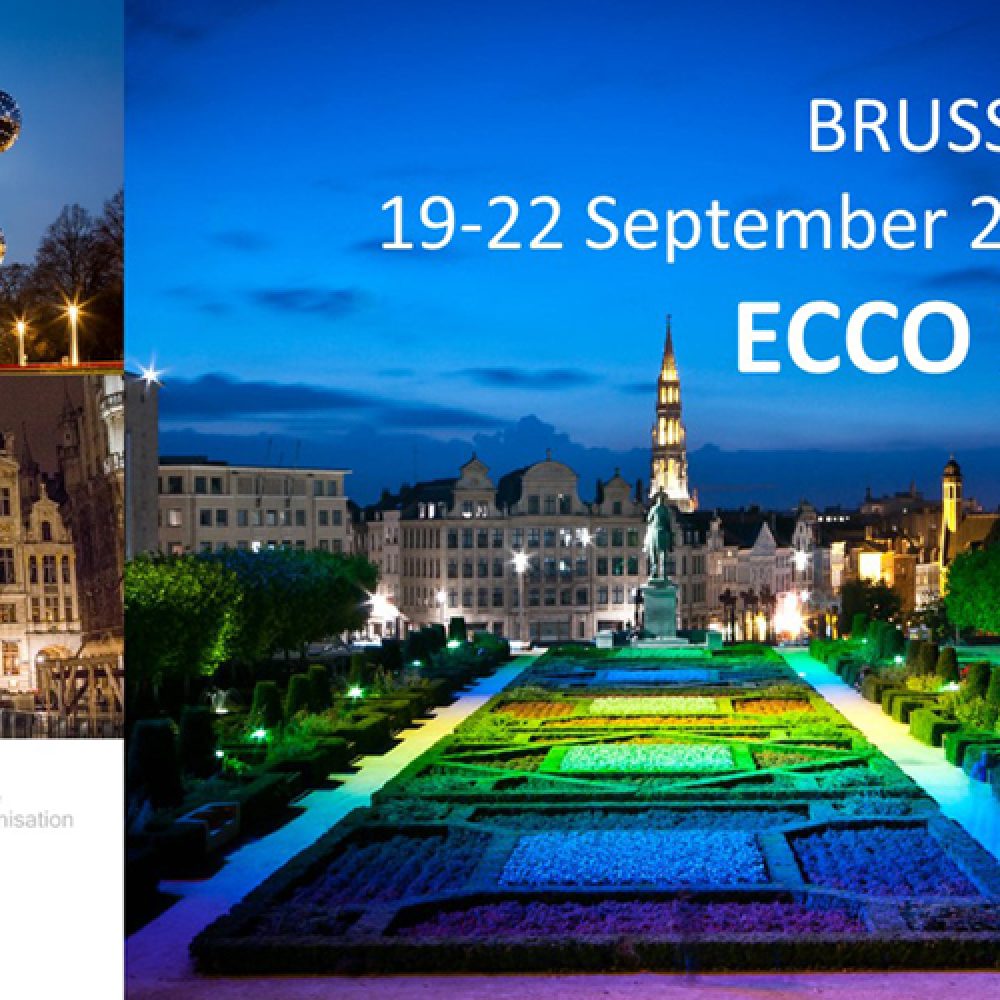
ECCO XLI. Brussels. Belgium
ECCO XLI’s varied scientific program will be combined with a MALDI-TOF training and the celebrations for BCCM’s 40th anniversary. More info and registration will soon be available on: https://bccm.belspo.be/ecco-xliSave the date!
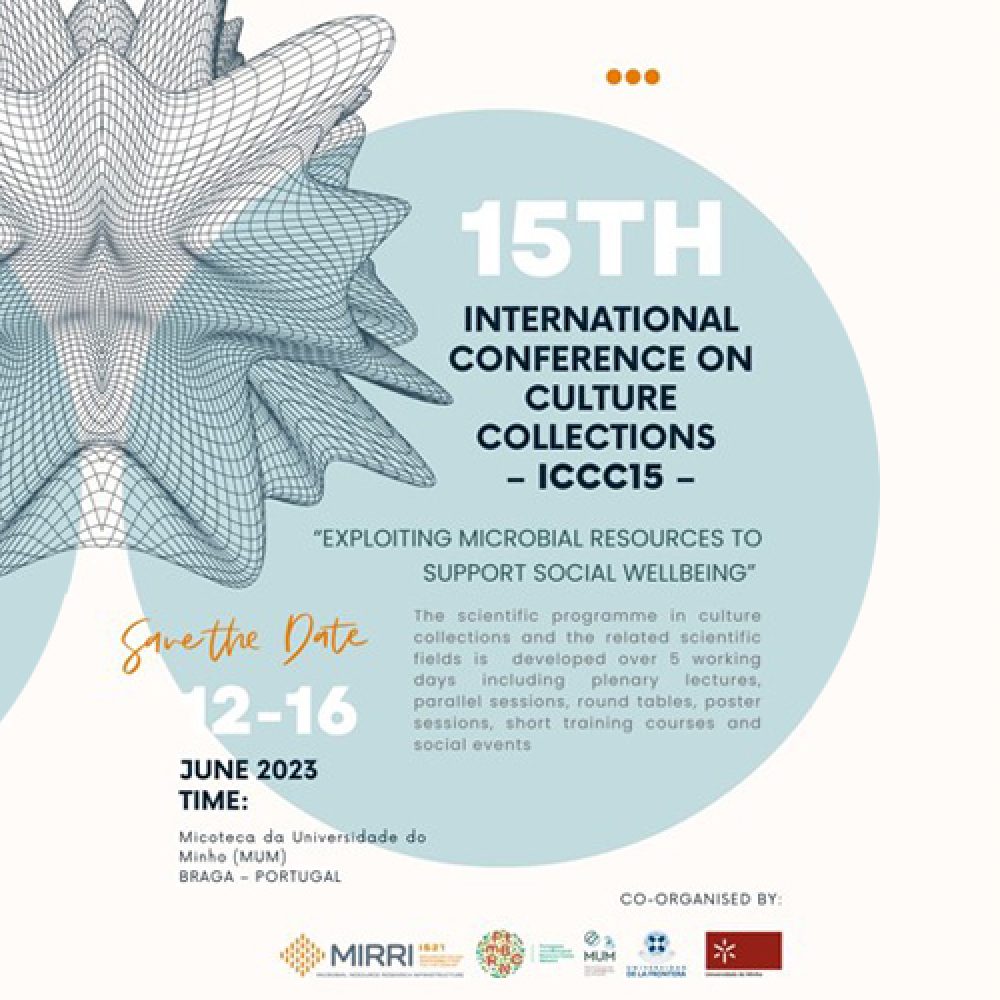
15th International Conference on Culture Collections – Save the Date
The Micoteca da Universidade do Minho (MUM), in collaboration with the Chilean Universidad de La Frontera (UFRO), the IS_MIRRI21 EU project (https://ismirri21.mirri.org/), MIRRI-ERIC (https://www.mirri.org/), the Portuguese microBiological Resource Centre Network /MIRRI-PT Node (Pt-mBRCN, https://mbrcn.pt/), the Portuguese Society of Microbiology (SPM, https://spmicrobiologia.wordpress.com) and the Portuguese Society of Biotechnology (SPBT, https://www.spbt.pt), is very pleased to announce that the next 15th International Conference on Culture Collections (ICCC15) will be held in Braga, from 12 to 16 June 2023. The ICCC is a regular conference organised by the World Federation for Culture Collections (WFCC, https://www.wfcc.info/) which represents 832 Culture Collections from 78 Countries and Regions, and collectively preserved more than 3,3 million microorganisms available for different user communities. MUM is very proud to host this international conference with the motto “Exploiting Microbial Resources to Support Social Wellbeing” and that is for the first time organised by Portugal. MUM over the years has been involved in the Executive Board (EB) of WFCC making significant contributions to the progress of the state-of-the-art long-term management of microbial preservation. Currently, the MUM Quality Manager is a member of the EB. As President of the Local Organised Committee, I invite you to save the dates 12-16 June on your agenda and I wish that your participation and contributions will enrich the scientific programme that will be available soon. Kind regards, Nelson Lima
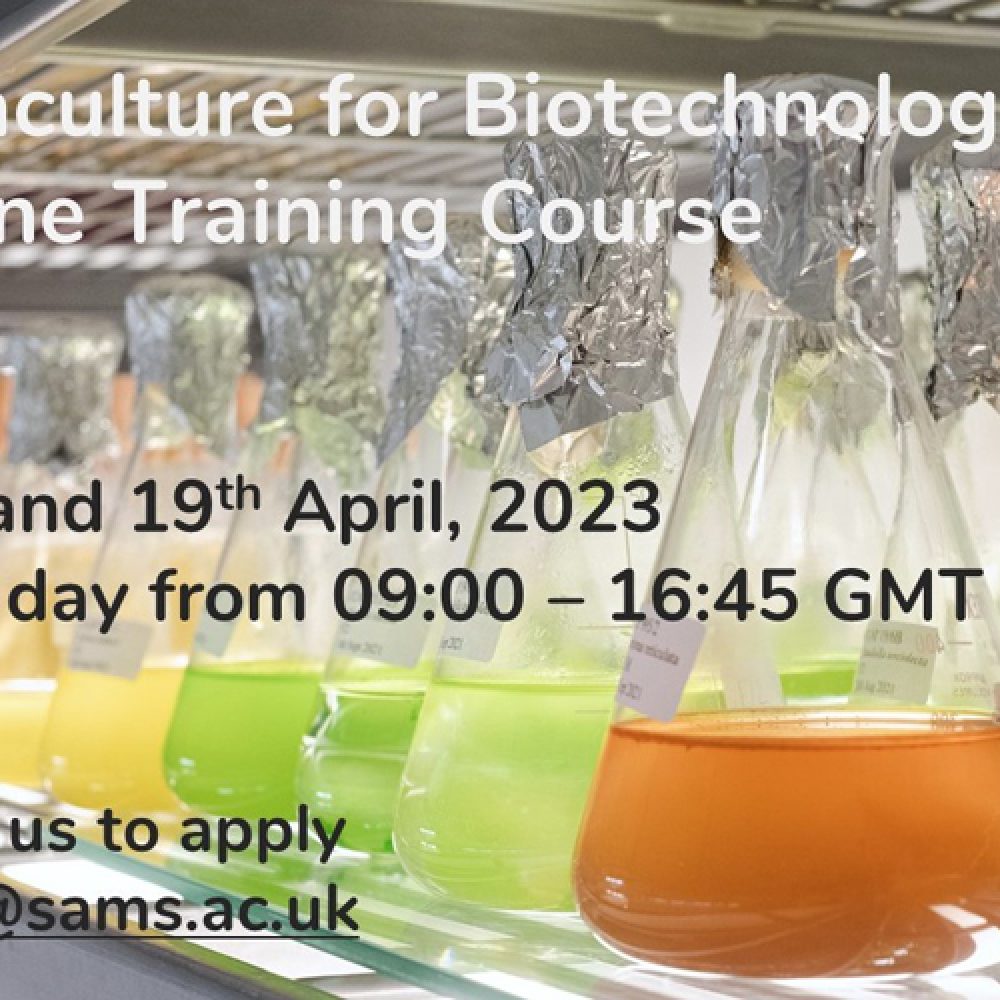
CCAP Algaculture for Biotechnology Online Training Course
In 2023 CCAP will once again be delivering their annual CCAP CPD course online, via MS Teams. The course is aimed at students, technicians, early career researchers, industry professionals and algae enthusiasts. The course will run on Tuesday 18th and Wednesday 19th April 2023 from 9:00 to 16:45 GMT each day, a fee of £50 will be charged to cover costs. The course will focus on microalgae; CCAP’s host institute, the Scottish Association for Marine Science (SAMS) has recently opened the Seaweed Academy, which offers training in macroalgae and the seaweed industry with input from CCAP. Link: https://www.ccap.ac.uk/index.php/algaculture-for-biotechnology-online-training-course/
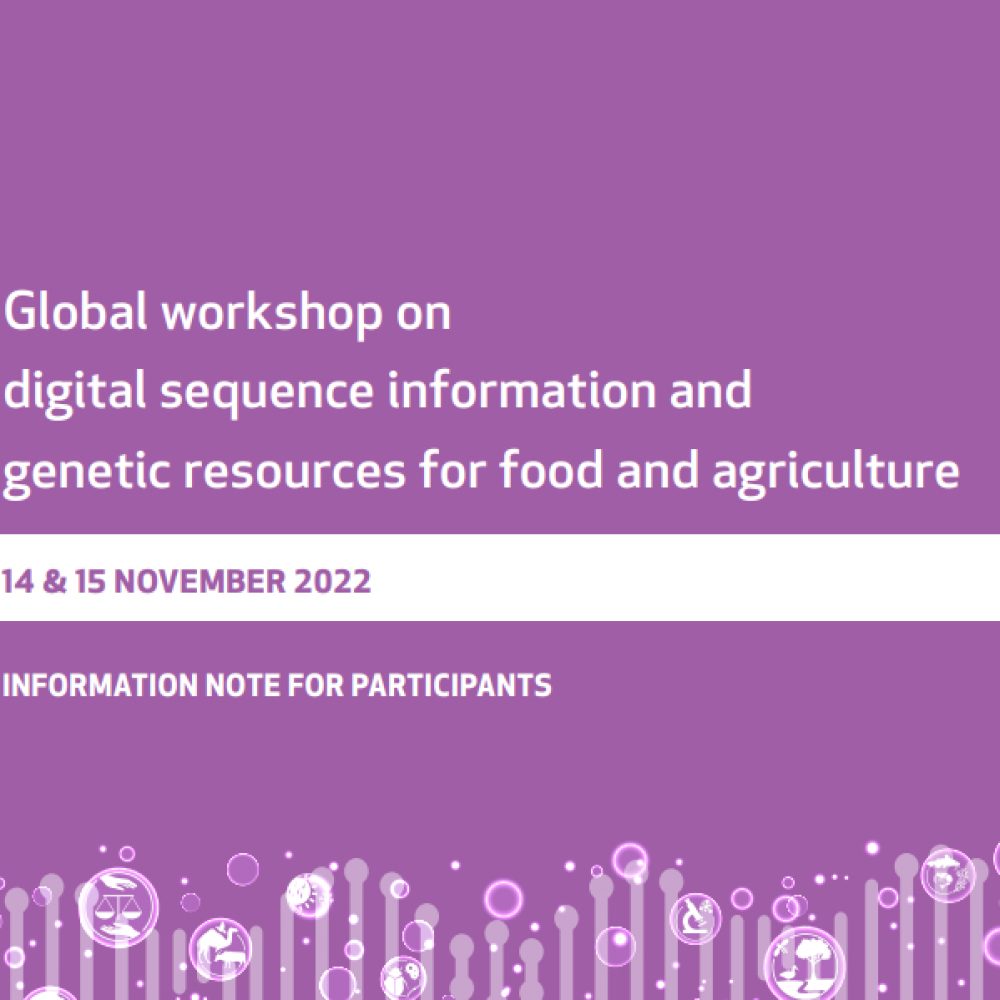
Members of ECCO, WFCC and UKBRCN will join the next Food and Agriculture Organization (FAO)
CABI has been carrying out a study for FAO on the impact of Digital Sequence Information (DSI) and equitable sharing of benefits arising from its use and it might be of interest to ECCO, WFCC and UKBRCN members to join the upcoming Food and Agricultural Organisation (FAO) Global Workshop on Digital Sequence Information and Genetic Resources for Food and Agriculture, scheduled from 14-15 November, 2022. It is a topic of high relevance to access and use of DSI on the genetic resources we take care of and use. For further details about this workshop please see: DSI_Workshop_2022 | Commission on Genetic Resources for Food and Agriculture | Food and Agriculture Organization of the United Nations (fao.org) the link to information for participants allows you to see the programme and register for the meeting and a pdf announcement is available at: Information note for participants (fao.org).
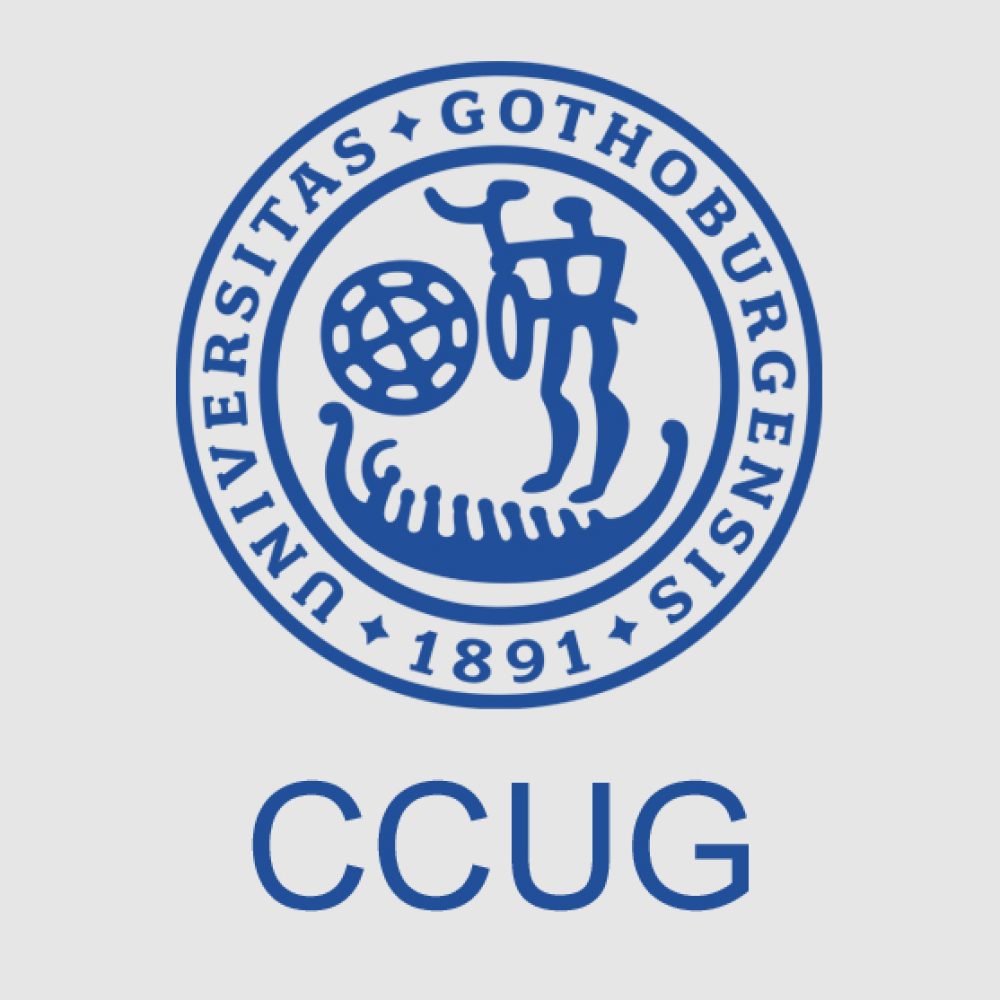
Enevold Falsen 1935-2022
We received the sad notice from CCUG Curator Ed Moore, that Enevolf Falsen, former curator of the CCUG collection, passed in January in Gothenburg, Sweden. Enevold was the founder and first Curator of CCUG from 1968 until his retirement in 2004. Many of our colleagues in the ECCO community will remember him as an active participant in ECCO events. With his colleagues Enevold hosted the ECCO XI Meeting in 1992 in Gothenburg. We offer our condolences to all staff at CCUG. The obituary can be accessed at the CCUG website, www.ccug.se, or in this link.
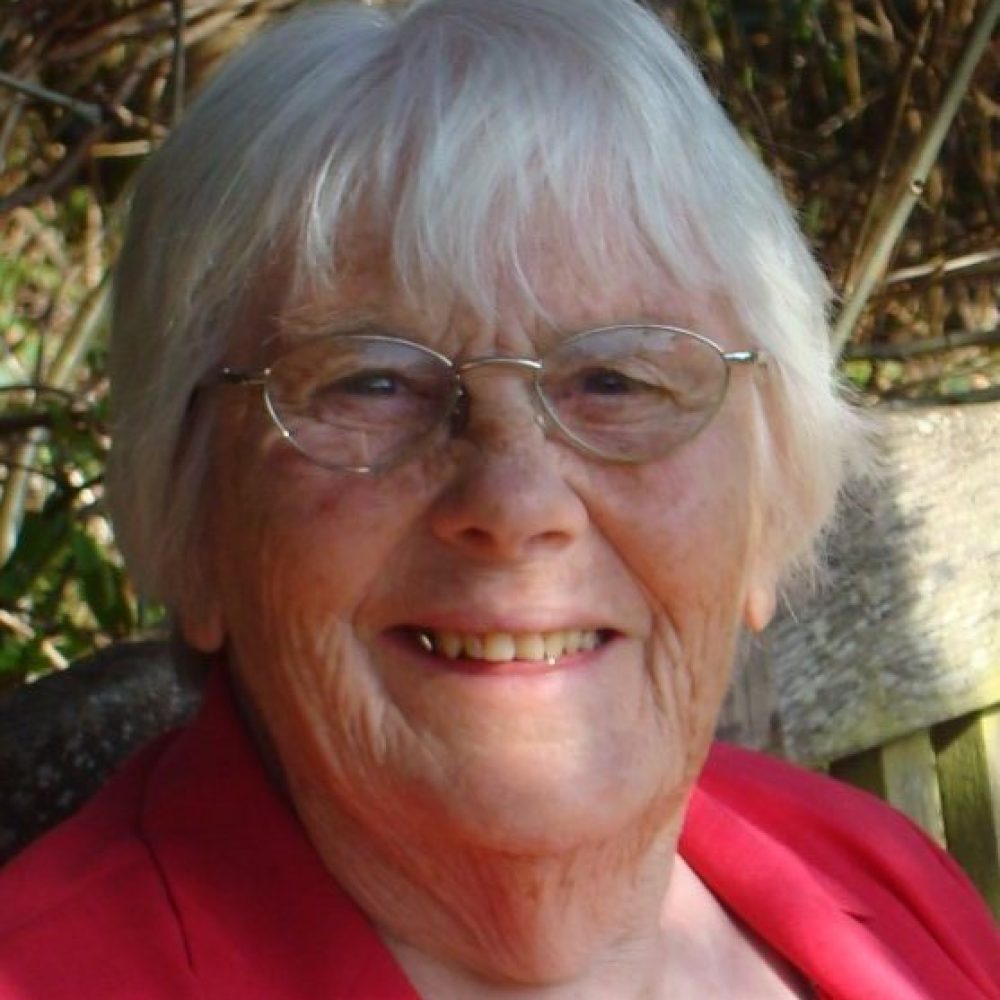
Barbara Kirsop (1919-2022)
One of the co-founders and first president of ECCO has passed away. She died on the 27th of January, at the age of 93. We owe the very existence of ECCO to visionary scientists like Barbara Kirsop. Joined by a small group of colleague curators, she set up an informal scientific and technical discussion forum, “European Culture Collection Curators’ Organization” (ECCCO), for which its first meeting was held in 1982 in Göttingen, Germany, hosted by the DSM. Having been the curator of NCYC (Norwich, UK) for many years, Barbara recognized the importance of stimulating exchange of experiences and expertise between service collection curators across Europe in a time when scientific cooperation between the east and west was far from easy. In 1983 Barbara was elected as first ECCCO chairman, and soon after that of the more formal European Culture Collections Organization (ECCO) into which it evolved. She later also served as President of the board for WFCC (World Federation for Culture Collections) for two consecutive terms. At the 1996 WFCC Conference held in Veldhoven (The Netherlands) Barbara and Dieter Klaus were both honoured with Honorary Life Membership of the organisation, and gifted with gingko trees, the gingko leaf being the symbol of WFCC’s longevity. Barbara kept her gingko tree alive in her garden, as memorial to Dieter, as a great and international scientist. An honest, kind and sensitive man who worked for all that was right for the development of culture collections. The same attention given to the WFCC gingko tree in her garden was devoted to WFCC partners all over the world, always sharing the news of the family joy. In January 2021 she contacted the ECCO board to express her concerns about the effects the UK leaving the EU could have on the European culture collection community and in particular the participation of UK collections within ECCO. She was obviously very worried about this, showing how very close the fate of ECCO still was to her heart! The ECCO board of course tried to convince her that from the viewpoint of ECCO we would stay the same family, and we can only hope that this response provided reassurance for her. ECCO owes a great deal to Barbara and we are deeply thankful for the way she has contributed to building the culture collection community, in Europe and beyond. Barbara was a stout advocate for culture collections at the National, Regional and Global levels. As an active member of the UK Federation for Culture Collections, amongst many endeavours, she taught on the UKFCC training courses as well as organizing many of them. This course ran successfully for many years, so much so that one of the International participants, Maija-Liisa Suihko, (then of VTT and several years later a serving officer of ECCO) asked Barbara and her UKFCC colleagues to take the course to Finland in 1984. Conversations at dinner varied, sometimes intense, microbiology of course but they also focussed on life and getting the best out of it. Barbara’s first visit to Brazil in 1986 as president of WFCC, was followed by the implementation of a training program to support the establishment of the Brazilian network of microbial collections. With her continuous support to raise funds from the British Council and the Brazilian Ministry of Science and Technology, about 50 training courses and international events focused on the management and computerization of culture collections were held. Barbara fought, supported by colleagues of the World Federation for Culture Collections, to ensure microorganisms were considered appropriately in the Convention on Biological Diversity. She commented “A number of uncertainties exist at the microbial level and there is a lack of awareness of the role played by microorganisms in ecosystem function.” Going on to say “specialist microbiological input into the debate is required to ensure that provisions made for national programmes are appropriate and practicable at the microbiological level” (Kirsop, 1996). The article” Who is….Santiago Moure” published by Barbara in the Biologist (2007) is a masterpiece that shows her capacity to tell stories and her fascination for the natural world, linking biodiversity data, microbial taxonomy, international collaboration and open access to scientific information. Barbara´s enthusiasm for biodiversity data sharing, open access and open science was a major source of inspiration for the establishment of speciesLink (https://specieslink.net/) an open access network for the delivery of biodiversity data on samples held in biological collections. Today speciesLink integrates in a dynamic way more than 500 data sets with records of over 15 million samples and nearly 5 million images of microorganisms, plants, and animals collected in Brazil and other South American countries. Barbara worked with many researchers across the culture collection world and helped share the information that would ensure all microbiologists could maintain their cultures in good condition and that they were aware of the work of culture collections and the services they delivered. Individual microbiologists and Curators, Culture Collection Organisations (UKFCC, ECCO, WFCC) and participants of many training courses and conferences have benefited from her good humour and wisdom. While in the 1980´s she had a key role in the establishment of microbial collections and collaborative networks in different regions of the world, after her “formal retirement” from the culture collections world in the 1990´s she became a champion of open access to and free flow of scientific information in developing countries. She was one of the founders of the Electronic Publishing Trust for Development and Bioline International (http://www.bioline.org.br/) a not-for-profit scholarly publishing cooperative. While CRIA (Reference Center on Environmental Information , Brazil) is responsible for the development and maintenance of Bioline´s system, the University of Toronto is responsible for the content management. In 2021, the average number of downloads of complete articles was 1.3 million per month. Celebrating 20 years of Bioline with Barbara, Dora Canhos, Sidnei de Souza, Vanderlei Canhos, and Leslie Chan, at CRIA in Brazil (2013) The vídeo of celebration of 20 years of Bioline with Barbara Kirsop is available at :https://www.youtube.com/watch?v=8OhdZFZ9x0w Our thoughts and condolences go out to the staff of NCYC and all who were privileged to work with her. We are thankful for the contributions to this tribute provided by David Smith and Vanderlei Canhos. Some selected Publications Brown, M. L. & Kirsop, B. (1972) Production of yeast mass during fermentation of wort by brewery yeasts. Journal of the Institute of Brewing 78, 39-42. https://doi.org/10.1002/j.2050-0416.1972.tb03427.x Hawksworth, D.L. & Kirsop, B.E. (eds) (1988). Living Resources for Biotechnology: Filamentous Fungi. 209pp. Cambridge: Cambridge University Press. Kirsop, B. Yeast identification. Nature 283, 799–800 (1980). https://doi.org/10.1038/283799b0 Kirsop, B.E. (1983). Culture collections: microbiological resource centres. Biologist 30, 139-143. Kirsop, B.E. The Convention on Biological Diversity: Some implications for microbiology and microbial culture collections. Journal of Industrial Microbiology & Biotechnology 17, 505–511 (1996). https://doi.org/10.1007/BF01574782 Kirsop, B. (2013) The stability of biochemical, morphological and brewing properties of yeast cultures maintained by sub-culturing and freeze‐drying. Journal of the Institute of Brewing, 80, 6, 565-570. https://doi.org/10.1002/j.2050-0416.1974.tb03650.x Kirsop, B.E. & DaSilva, E.J. (1988). Organization of resource centres. In: Living Resources for Biotechnology: FilamentousFungi (edited by D.L Hawksworth and B.E. Kirsop) pp 173-187. Cambridge, UK: Cambridge University Press. Kirsop, B.E. & Hawksworth, D.L. (eds) (1994) The biodiversity of microorganisms and the role of microbial resource centres. Braunschweig, Germany: World Federation for Culture Collections. Kirsop, B.E. & Krutzman, C.P. (eds.) (1988). Living Resources for Biotechnology: Yeasts, 234 pp., Cambridge, UK: Cambridge University Press. Kirsop, B.E. & Doyle, A. (eds) (1991). Maintenance of Microorganisms and Cultured Cells: A Manual of Laboratory Methods, London: Academic Press. Kirsop, B.E. & Snell, J.J.S. (eds) (1984). Maintenance of Microorganisms, London: Academic Press. Sly, L.I. & Kirsop, B. (1990). 100 years of culture collections. Proceedings of the Kral Symposium to celebrate the centenary of the first recorded service culture collection. Osaka, Japan: Institute of Fermentation, Osaka. Kirsop, B. & Sneath, P H. A. (2008) The Current Status of Culture Collections and Their Contribution to Biotechnology. Critical Reviews in Biotechnology 2, 287-314. https://doi.org/10.3109/07388558409084662 Kirsop, B (2007) Open Acess and Developing Countries. Current Science 93, 276-277. https://www.currentscience.ac.in/Volumes/92/03/0276.pdf Kirsop, B.(2007) Who is ….Santiago Moure? Biologist 54, 224-227
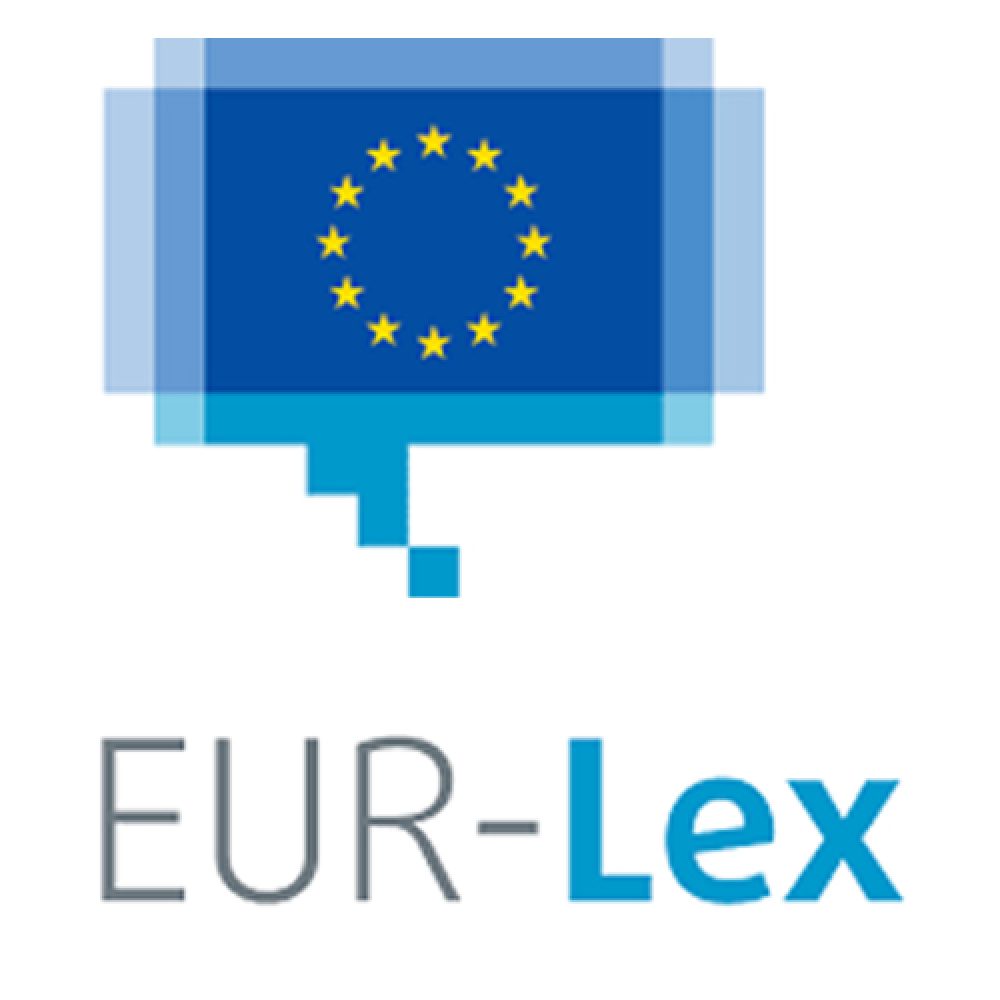
The new EC Guidance documents for the EU ABS Regulation
The long-awaited update of the first guidance document of 2016 was adopted and released by the European Commission on 14 December 2020. The new Guidance document C(2020)8759 (with Annexes I and II) incorporates and complements the previous document, and was again developed in consultation with stakeholders from all important sectors, including experts from the field of culture collections. It explains the scope of application and obligations under the Regulation (EU) No 511/2014 (EU ABS Regulation), and provides numerous example cases. Importantly, several issues that were not or were insufficiently treated in the 2016 guidance document, have now been clarified, such as how to deal with screening studies and laboratory strains. The question whether digital information on genetic resources (especially digital sequence information, DSI) would fall in scope of the Nagoya protocol is still under consideration of the Parties, and thus could not be addressed in this new guidance. EUR-Lex – 52021XC0112(02) – EN – EUR-Lex (europa.eu)
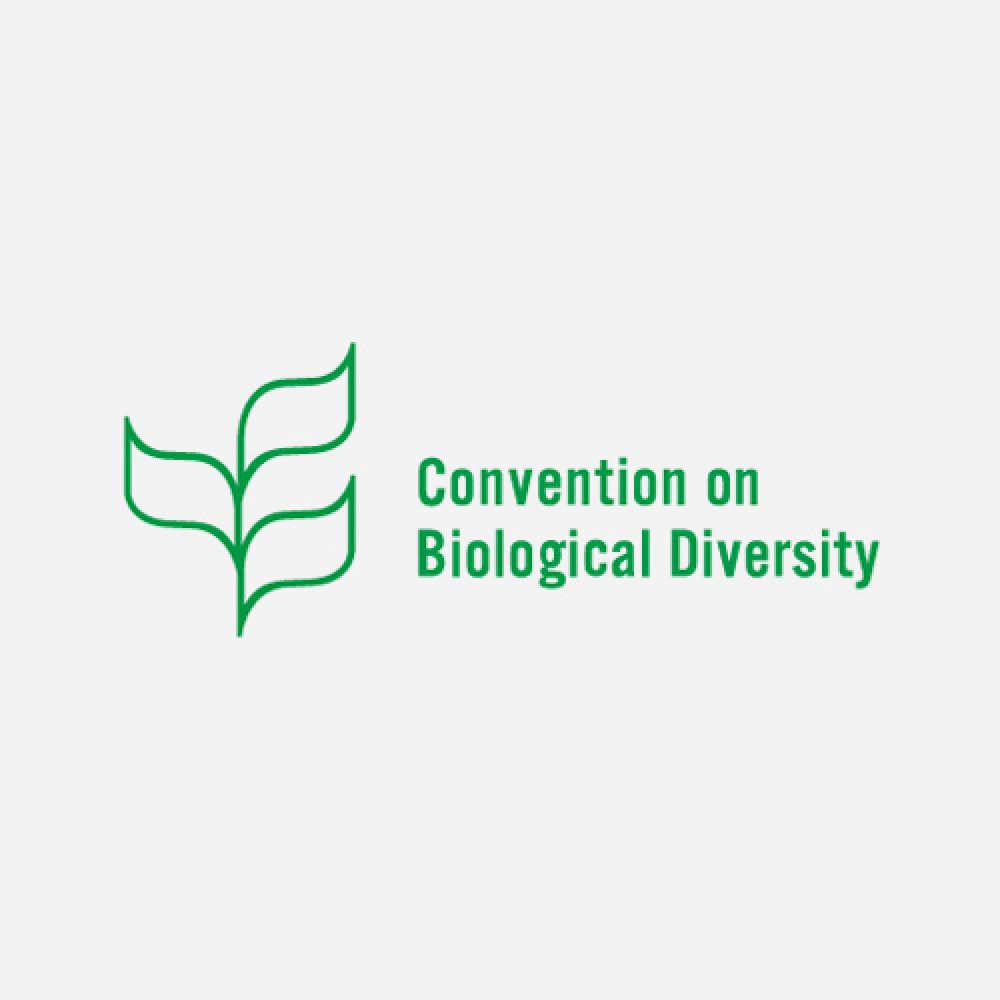
New ECCO Model documents added to the ASBCH information resource
In answer to a request from the CBD Secretariat, the new ECCO model documents for MDA and MTA have been added to the ABS-Clearing House information resource ‘Model Contractual Clauses, Codes of Conduct, Guidelines, Best Practices and/or Standard’ on October 23, 2020 (ABSCH-A19A20-SCBD-252690-1). These models have been published in Annex to Verkley et al., FEMS Microbiology Letters 367, Issue 5, March 2020, fnaa044. https://doi.org/10.1093/femsle/fnaa044 Model Agreement documents, Codes of Conduct, Best practices New ECCO model documents for Material Deposit and Transfer Agreements (2020) – check out the dedicated page on this website here MIRRI Best Practice Manual on Access and Benefit Sharing (Verkley, Martin, Smith 2016) – Developed especially for the practices of culture collections for microorganisms, based on input provided by various ABS experts including representatives of ECCO Corporate Members. https://absch.cbd.int/database/A19 A20/ABSCH-A19A20-SCBD-208213. CETAF Code of Conduct and Best Practices on Access and Benefit Sharing and Material Transfer Agreement Templates ( Consortium of European Taxonomic Facilities 2019). – Developed for the practices of natural science collections in the broad sense, and the first best practice to be officially recognized by the European Commission.
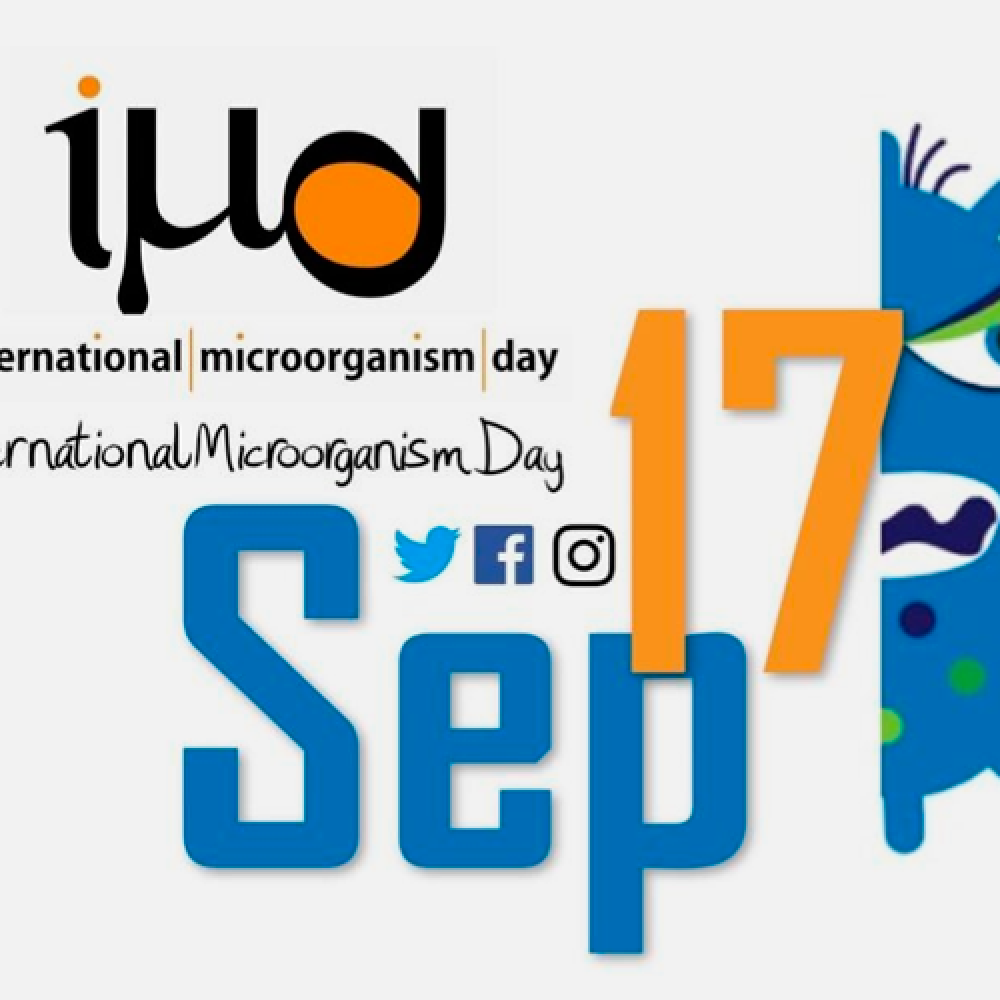
International Microorganism Day
17 September is International Microorganism Day, an opportunity to promote the diversity and variety of microorganisms and a way to encourage everyone to recognize and celebrate the many ways microscopic organisms are important in human health, culture and, throughout our daily lives. International Microorganism Day is an annual celebration of microbiology and this year the Federation of European Microbiological Societies (FEMS) wants to promote the positive contributions of microorganisms in our daily lives given the negative stories associated with viruses in the news.
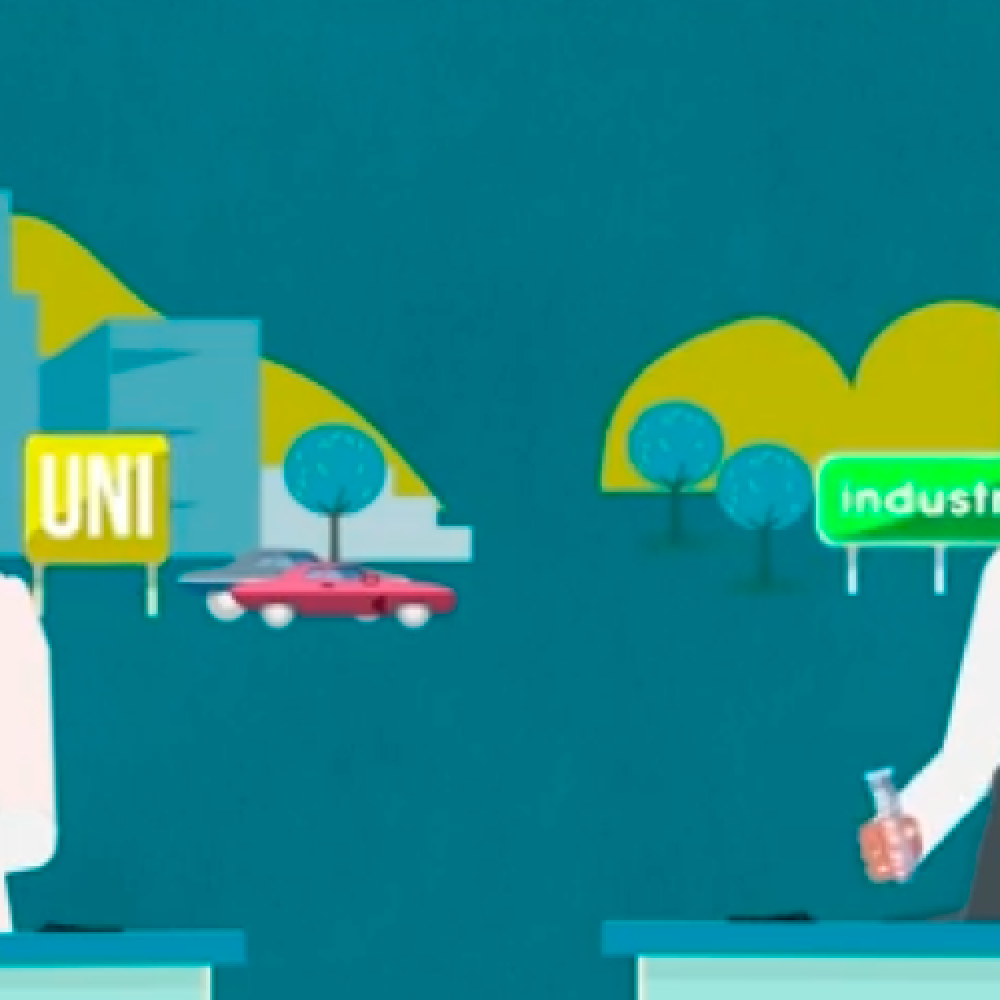
The ELSRI launches its services with a video
European Life Sciences Infrastructures launches this video to show how they can support researchers, through their services.
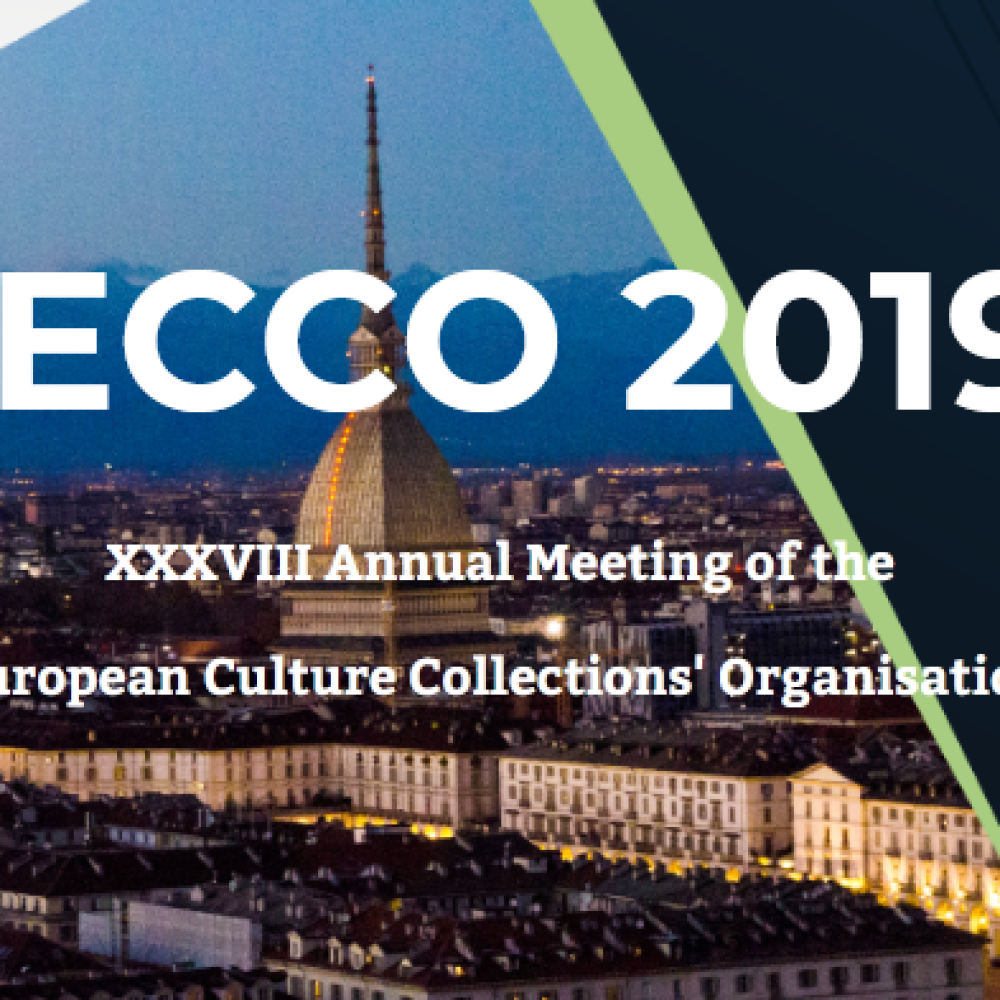
ECCO XXXVIII. Torino, Italy
Venue & Date Programs Presentations Social Poster . . Presentation Dear Colleagues, The University of Turin together with the Mycotheca Universitatis, Taurinensis (MUT) and the Turin University Culture Collections (TUCC) are delighted to invite you to the 38th Annual Meeting of the European Culture Collections’ Organisation (ECCO) which will be held in Turin (Italy), from 12th to 14th June 2019 at the University of Turin. The focus of ECCO 2019 is on “Microorganisms as tools to win the current societal challenges and support European strategies in bioeconomy”. Microorganisms are expected to play a pivotal role in the progress of bio-economy, allowing the achievement of the long-term goal to develop a competitive, resource-efficient and low carbon economy by 2050, as established by the European Commission. The ECCO 2019 meeting is aimed at providing an insight into the innovation ecosystem promoted by Culture Collections and shows its influence in policymaking and sustainable bio-economy in the European Union, whose market is currently about € 2.4 billions and employs 22 million people. The transition in a changed EU policy context and towards a new environmental, social and economic reality, will rely on the advancement in technology of a range of processes, as well on the achievement of a breakthrough in terms of technical performances and cost effectiveness, and will depend on the availability of sustainable biomasses and advanced knowledge on the potentialities of microorganisms. In this landscape, the microbial Biological Resource Centers (mBRCs) are fundamental to guarantee to Bioscience and Bioindustry not only to access to a broad range of high quality bioresources and the latest technology but also to foster knowledge transfer, education and training. We look forward to seeing you in Turin. The Organizing Committee . . Organizers, sponsors, collaborators . . . . . .
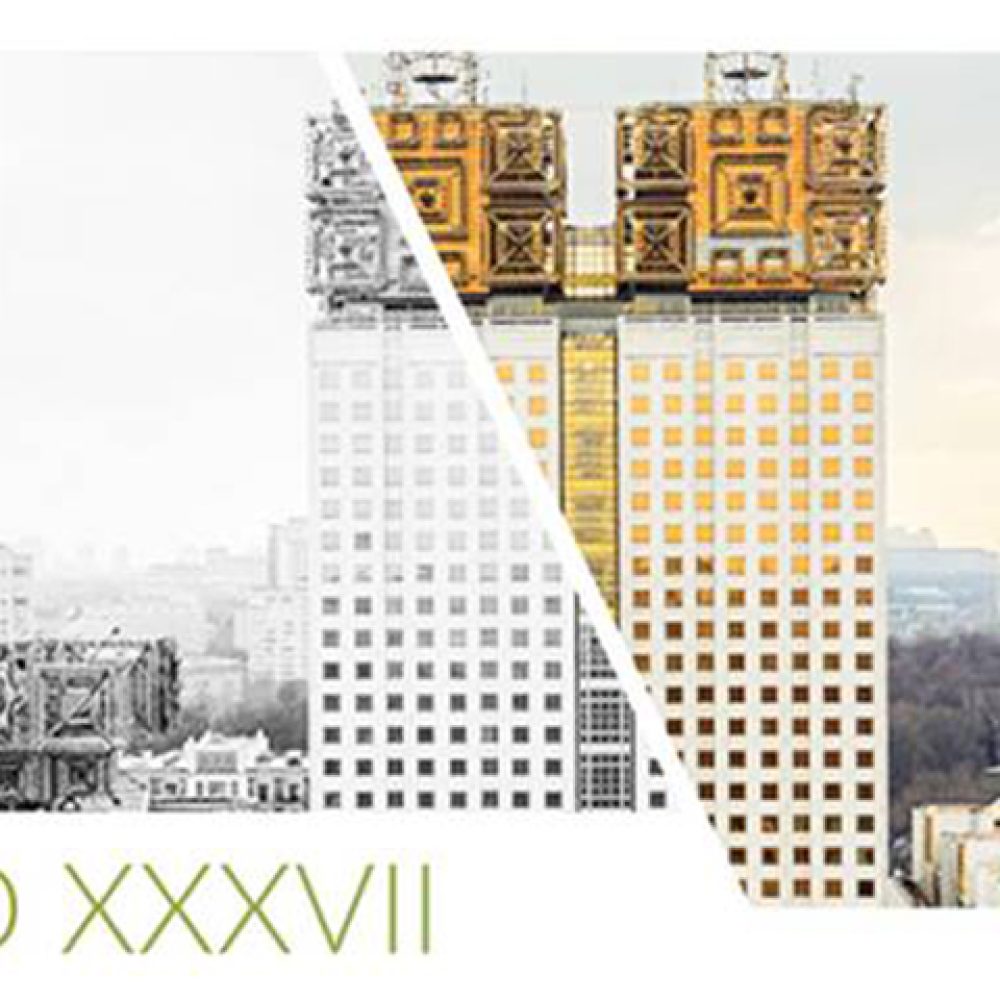
ECCO XXXVII. Moscow, Russia
Venue & Date Programs Presentations Social Poster . . Presentation Dear Colleagues, The European Culture Collections’ Organisation (ECCO) and the consortium of Russian collections of microorganisms invite you to the XXXVII ECCO meeting to be held in Moscow 13-15 September, 2018. The success of previous ECCO meetings demonstrates that personal contacts among the active professionals from culture collections are of great importance for exchanging best practices in this field and are not replaceable by the modern technical communication tools.Activities related to culture collections are multifaceted. Microorganisms are in the focus of attention. Culturing of previously non-culturable microorganisms and gaining insight into microbial associations change our perception of them from a “thing-in-itself” to a “thing-for-us”. Cultivable microorganisms and microbiomes should be studied and preserved with minimal losses to provide different customers with standard high-quality biomaterials. Culture collections, having the status of Core Facilities, are expected to follow the commonly accepted and approved practices in biosafety, biosecurity and legitimate transfer of genetic resources. The ways to achieve these goals will be discussed at the XXXVII ECCO 2018 meeting. The meeting will follow the spirit and style of the previous ECCO meetings. . . Organizers, sponsors, collaborators . .
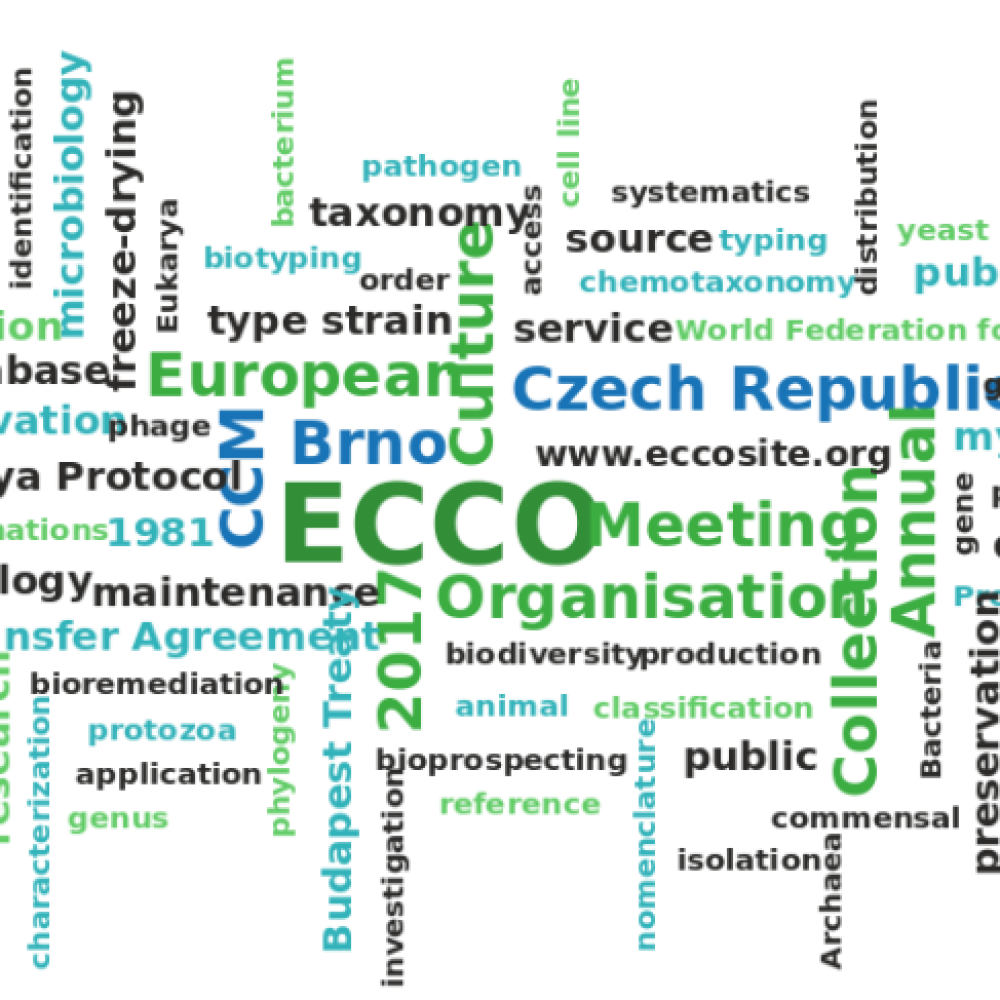
ECCO XXXVI. Brno, Czech Republic
Venue & Date Programs Presentations Social Poster . . Presentation The European Culture Collections’ Organisation (ECCO) and the Czech Collection of Microorganisms (CCM) invite you to the XXXVI ECCO meeting held at the Masaryk University Campus in Brno from September 13 to September 15, 2017. The aim of the ECCO 2017 meeting is to develop a platform for contacts and discussions between experts from culture collections to support cooperation between professionals in this field. The meeting will follow the spirit and style of the previous ECCO meetings. The program will include presentations from guest speakers, oral talks and poster sessions. We hope to have the honour of welcoming you to the ECCO 2017 meeting in Brno. Best regards,Organising Committee . Organizers, sponsors, collaborators . The ECCO 2017 meeting is organised by the Czech Collection of Microorganisms on behalf of the European Culture Collections’ Organisation .
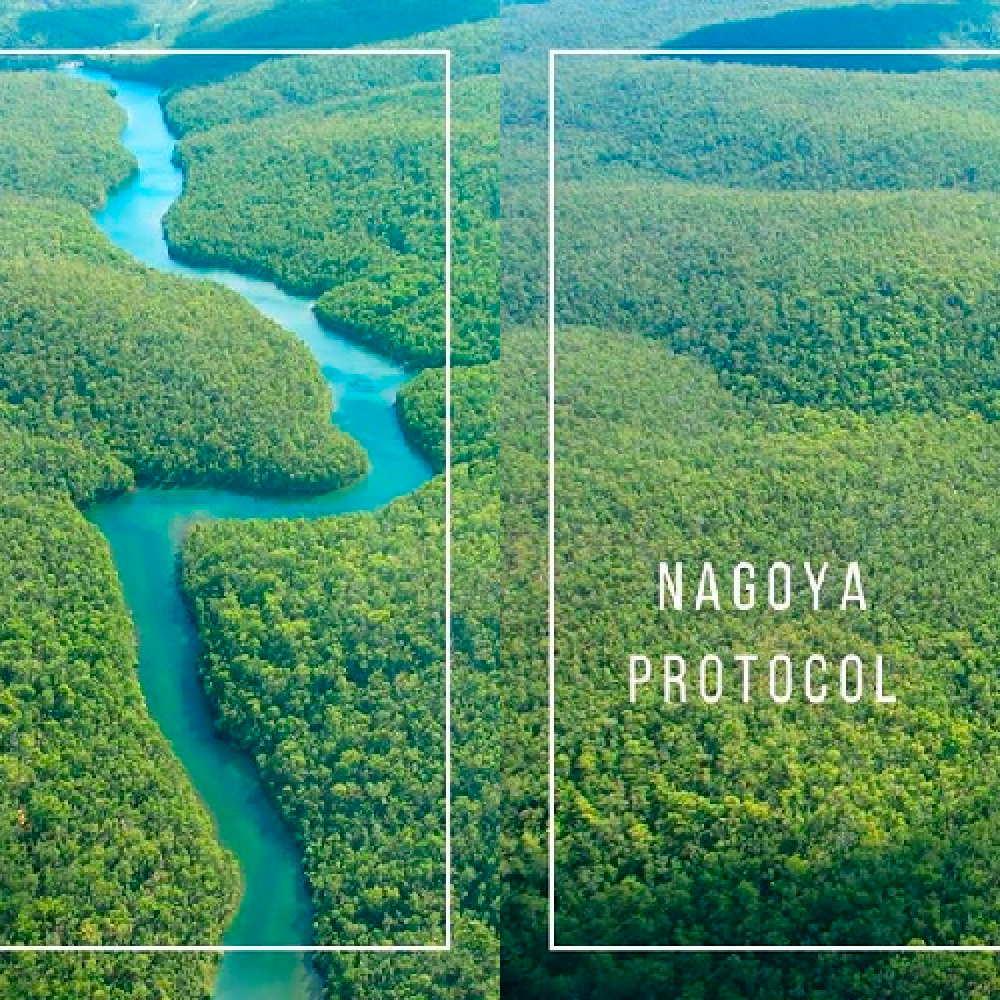
Nagoya protocol
Culture collections and Access and Benefit Sharing (Nagoya Protocol) . The Convention on Biological Diversity (CBD) entered into force on 29 December 1993. Its aims are to conserve biological diversity, foster its sustainable use, and the fair and equitable sharing of benefits arising from the utilization of ‘genetic resources’ and/or traditional knowledge associated with such resources. According to the CBD, genetic resources are defined as ’genetic material of actual or potential value’ and genetic material is defined as ‘any material of plant, animal, microbial or other origin containing functional units of heredity’. So, the biological materials typically preserved in culture collections fall within scope of the CBD. However human cell lines, as all human genetic resources, are out of scope of the CBD. The CBD recognizes the sovereign rights of countries over their own ‘genetic resources’, and countries are expected to grant access to their genetic resources (and associated traditional knowledge) and can determine the conditions for access. The Nagoya Protocol entered into force on 12 October 2014. Parties to the Protocol may regulate access to their genetic resources and require ‘Prior Informed Consent’ (PIC) from the competent national authority and the settling of ‘Mutually Agreed Terms’ (MAT) between provider and user of the genetic resources. Countries can also decide to provide “free” access to their genetic resources, so without any ABS requirements. Yet, all Parties are obliged to take measures to monitor the use of foreign resources within their territory, and assure that users comply with ABS legislation of the provider countries of those genetic resources. The European Union adopted the Regulation (EU) No 511/2014 (EU ABS Regulation), which also entered into force on 12 October 2014. This regulation governs user compliance measures and benefit sharing within the EU, but it does not deal with access to the genetic resources as this is left to the individual Member States. The EU ABS Regulation is complemented by the Commission Implementing Regulation (EU) 2015/1866 (EU 2015) providing detailed rules as regards the register of collections, monitoring user compliance and best practices. As supporters of the goals of the CBD and long-time contributors to ex-situ conservation of (microbial) biodiversity, culture collections have been actively involved in various fora and stakeholder meetings organized by the ABS policy makers at national, European and global level. Whenever possible, they have clarified practical implications and the potential negative impact of ABS regimes on collection management, microbiology and open science in general, and bioeconomic development. Initiatives were taken to develop Codes of Conduct, Best Practices, Model Agreement documents and other tools to support culture collection staff and the users of resources in public collections to comply. Below several useful links are provided. Information resources on ABS The Access and Benefit Sharing Clearing House (ABSCH) – ABSCH | Access and Benefit-Sharing Clearing-House (cbd.int) The EU pages on Access and Benefit Sharing – Environment – European Commission – Biodiversity – International – Genetic resources and ABS (europa.eu) The German Nagoya Protocol Hub – Especially interesting are the cases presented of successful applications for PIC and MAT in countries worldwide. https://www.nagoyaprotocol-hub.de/https://www.nagoyaprotocol-hub.de/
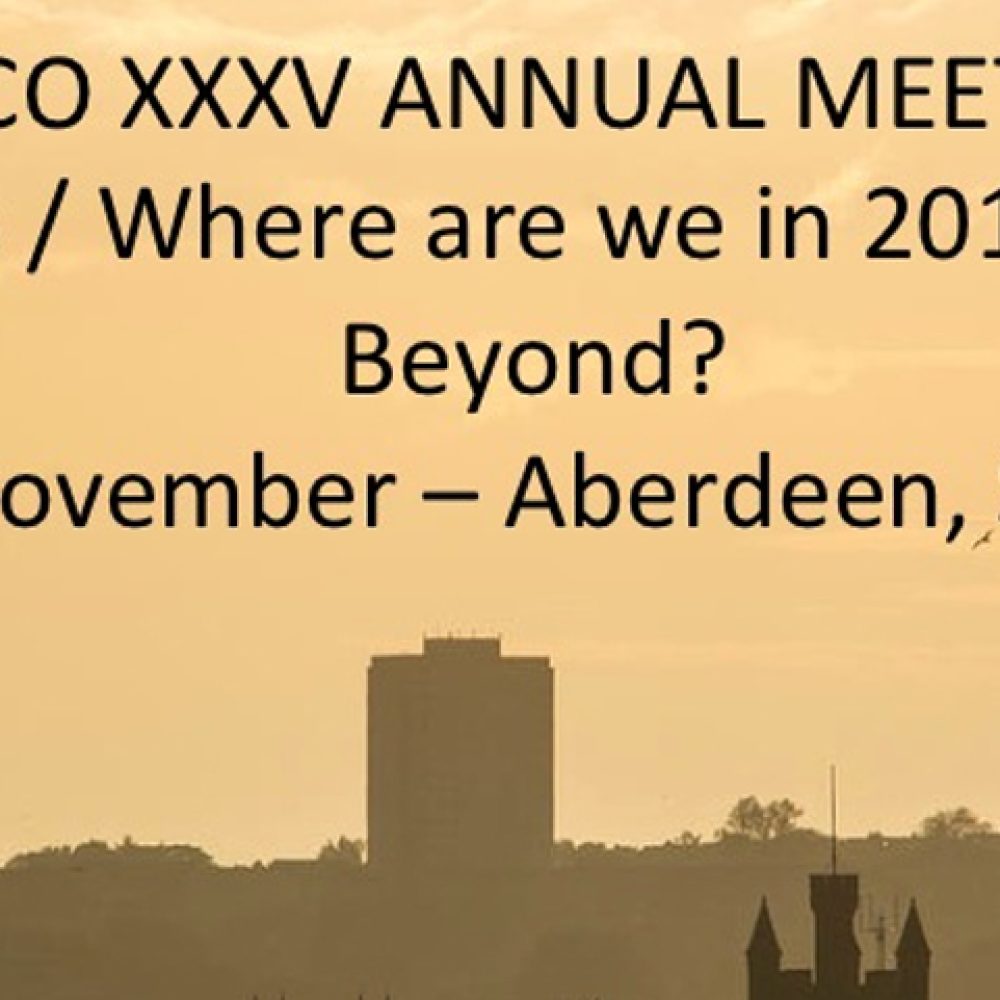
ECCO XXXV. Aberdeen, Scotland (UK)
Venue & Date Programs Presentations Social Poster . . Presentation We are proud to announce the next ECCO meeting that will be held in Aberdeen, Scotland between the 2nd and the 4th of November 2016.
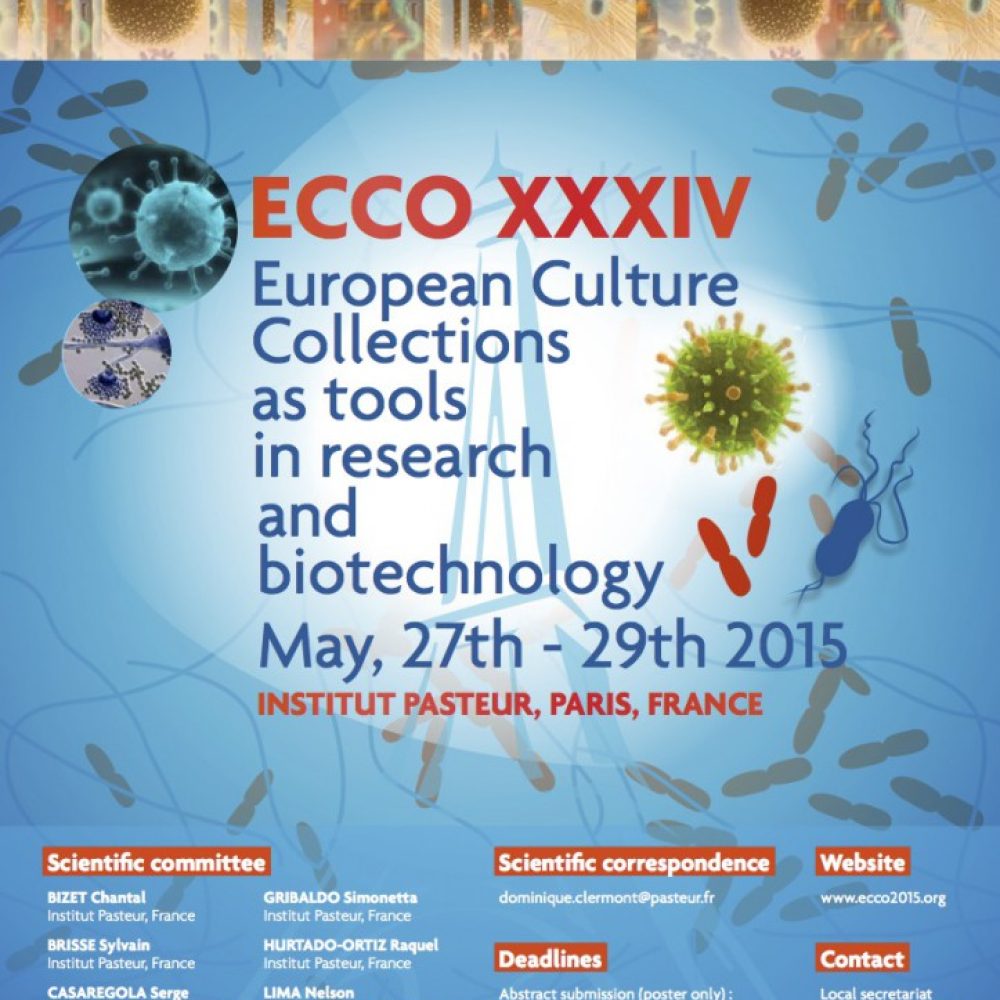
ECCO XXXIV. Paris, France
Venue & Date Programs Presentations Social Poster . . Presentation The Biological Resource Centre of Institut Pasteur (CRBIP) organizes the ECCO meeting 2015 which will be held at the Institut Pasteur in Paris, France from May 27th to 29th. The meeting brings together the European community of professionals on Microbial Culture Collections, and will address the future challenges of Biological Resource Centres regarding the adaptation to the needs and requirements of academics and bio-industry. The theme of the ECCO XXXIV is: “European Culture Collections as tools in research and biotechnology”. The meeting will be focus on taxonomy/ evolution, biodiversity, omics, regulations and news about MIRRI (Microbial Resource Research Infrastructure: www.mirri.org) and other ESFRI infrastructures. Dr. Ilse Cleenwerck of the BCCM/LMG Bacteria Collection will give a presentation at ECCO2015 entitled “New insights in the taxonomy of plant-pathogenic and -associated bacteria in the Enterobacteriaceae, based on MLSA data”Collection: BCCM coordination cellBCCM/LMG Bacteria Collection . . Organizers, sponsors, collaborators . .
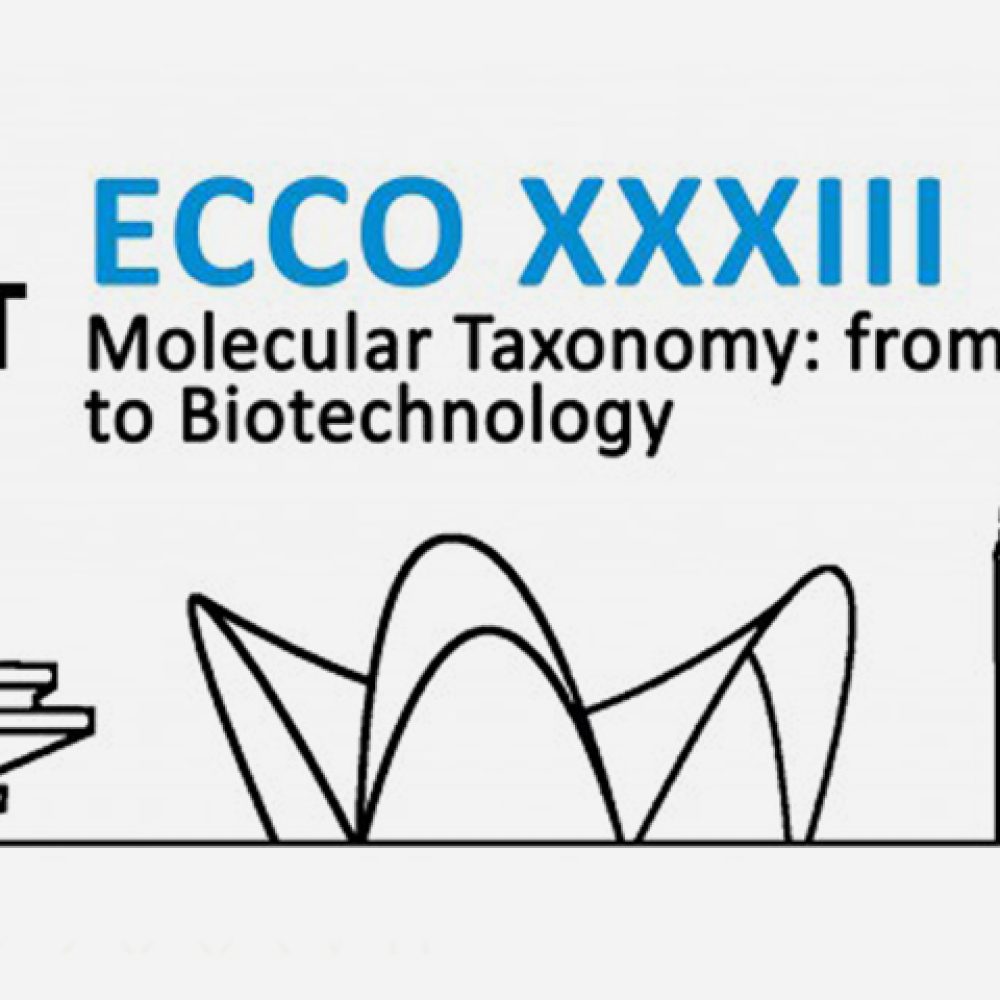
ECCO XXXIII. Valencia, Spain
Venue & Date Programs Presentations Social Poster . . Presentation On behalf of the ECCO Board and the Organizing Committee, the CECT cordially invites you to attend the 33rd Annual Meeting of the European Culture Collections’ Organisation, which will be held at the Conference Centre ADEIT–Fundación Universidad-Empresa situated in the historic down town of Valencia.With the motto ‘Molecular Taxonomy: from biodiversity to biotechnology’ and through six symposia, we hope to foster debate in aspects related to advances in microbial isolation and preservation, molecular methods for identification and community analysis, biotechnological applications of microorganisms, patent issues, access and benefit sharing, information exchange among data-bases, public services, … We are looking forward to seeing you in Valencia!Rosa AznarCECT Director . . Organizers, sponsors, collaborators . .
